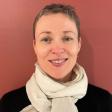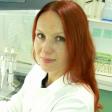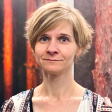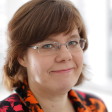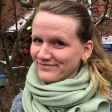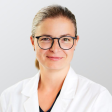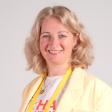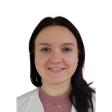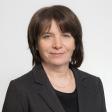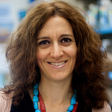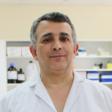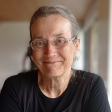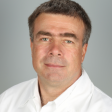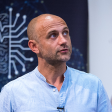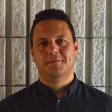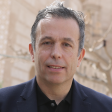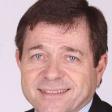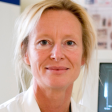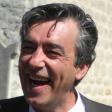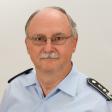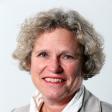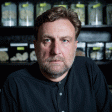Knowledge for Use in Practice
International Conference on Medical and Health Research
26–28 March 2025 in person & online
16 Dzirciema iela, Riga
Knowledge for Use in Practice delves deep into medical research, providing practical solutions for pressing health concerns that impact all of society. This conference showcases cutting-edge developments in healthcare, ensuring that scientific breakthroughs are not just theoretical, but applied to create real-world health solutions.
The main sections of Knowledge for Use in Practice conference are listed below.
The Role of Dysregulated Immune Responses and Infection in Disease Pathology
26–28 March, Hippocrates Lecture Hall, RSU, 16 Dzirciema iela
- 26 March. Perspective Strategies to Overcome Antibacterial Resistance and Tackle Hard-to-Treat Infections. Agenda
As the threat posed by multidrug-resistant pathogens intensifies, we find ourselves at a critical juncture where antibiotic treatment is increasingly ineffective. Phage therapy has emerged as a promising alternative and, in some instances, the only viable option for the patient. Unlike broad-spectrum antibiotics, phages target only specific bacteria, thus not disturbing the microbiota.
The abundance of phages and their interaction with bacteria have shown that phages could complement or even replace antibiotics in the fight against infections. The research in phage application in medicine and other spheres is flourishing and has demonstrated immense potential for the future treatment of difficult-to-treat infections.
Agenda
Session I: Current Landscape of Antibacterial Resistance in Latvia
Chair: Asst. Prof. Kārlis Rācenis (Latvia), Prof. Ludmila Vīksna (Latvia)9:00–9:20 Practical Implications of AMR Research in Latvia
Uga Dumpis, Latvia9:20–9:34 Antimicrobial Resistance Related Mortality in the Clinical University Hospital of Latvia
Ieva Voita, Latvia9:34–9:48 Healthcare-Associated Infections and Antimicrobial Resistance: A Point Prevalence Study in a Tertiary Care Hospital
Anna Žilde, Latvia9:48–10:02 Bacteremia Surveillance as an Antimicrobial Resistance Limiting Tool
Liāna Linda Skrauča, Latvia10:02–10:16 Antimicrobial Resistance Profile of Pseudomonas aeruginosa in a Level IV Healthcare Institution in Latvia from 2011 to 2024
Evija Skrode, Latvia10:16–10:30 Mycoplasma Pneumoniae Detection and Characterisation, 2023–2024
Diāna Dušacka, Latvia10:30–11:00 Break Session II: Phage Therapy: A Forgotten Cure Rediscovered?
Chair: Prof. Uga Dumpis (Latvia), Asst. Prof. Saija Kiljunen (Finland)11:00–11:15 Phage Therapy in Human Medicine
Kārlis Rācenis, Latvia11:15–11:30 History of Phage Therapy
Juta Kroiča, Latvia11:30–12:00 Phage Therapy in Belgium
Jean-Paul Pirnay, Belgium12:00–12:30 Transfer of Intestinal Phageome to the Blood and Its Regulation by the Immune System
Krystyna Dąbrowska, Poland12:30–13:30 Break Session III: Phage Isolation and Characterization – Establishing Effective Phage Bank
Chair: Prof. Juta Kroiča (Latvia), Dr. Jean-Paul Pirnay (Belgium)13:30–14:00 S. aureus RM-Systems and the Selection of Phage Production Host
Saija Kiljunen, Finland14:00–14:15 Isolation and Characterization of Bacteriophages Targeting Fish-Pathogenic Aeromonas spp.
Karīna Švānberga, Latvia14:15–14:30 From Superbugs to Super Solutions: Testing Susceptibility of E.coli Against Bacteriophage Cocktails – Preliminary Results
Lise Berentsen, Latvia14:30–14:45 Propagation of the Acquired Virulence Traits by the Multi-Drug Resistant Carbapenemase-Producing Klebsiella pneumoniae in the Hospital Network in Latvia
Baiba Niedre-Otomere, Latvia14:45–15:00 First Steps Towards the Latvian Klebsiella spp. Bacteriophage Biobank
Ņikita Zrelovs, Latvia15:00–15:30 Break Session IV: Material Sciences and Phages
Chair: Prof. Krystyna Dąbrowska (Poland), Assoc. Prof. Ingus Skadiņš (Latvia)15:30–16:00 Hydroxyapatite Modification with Zinc and Bacteriophages for the Development of Novel Antibacterial Biomaterials
Līga Stīpniece, Latvia16:00–16:15 Titanium Plate Modifications and Biopolymer Matrices: Innovative Strategies Towards Preservation of Bacteriophage Stability and Release Profile
Dace Rezevska, Latvia16:15–16:30 Bacteriophages as a Model for Antiviral Susceptibility Detection on Metal Surfaces
Renārs Broks, Latvia16:30–16:45 Advanced Hydrogel Platforms: Cross-Linked Polypeptide for Non-Antibiotic Antibacterial Applications
Artemijs Ščeglovs, LatviaPoster presentations
Venue: Cafeteria, RSU, 16 Dzirciema iela
Screen #5
Committee: Asst. Prof. Aigars Reinis (Latvia), Dace Rudzīte (Latvia)10:30–11:00 Investigating the Incidence of ESKAPE Organism-Associated Bloodstream Infections Across Multiple Departments at Pauls Stradiņš Clinical University Hospital During 2021–2023
Vinay Mulukutla, Latvia10:30–11:00 Prevalence and Tetracycline Resistance of Ureaplasma Species and Mycoplasma hominis in Latvia from 2014 to 2024
Linda Maule, Latvia10:30–11:00 The Results of Wastewater Surveillance for Non-Polio Enteroviruses in Latvia 2024
Gatis Pakarna, LatviaCommittee: Assoc. Prof. Ingus Skadiņš (Latvia), Asst. Prof. Monta Madelāne (Latvia) 12:30–13:30 Phenotypic Characterization of Different Salmonella enterica Serotypes in Latvia 2022–2023
Anastasija Kozira, Latvia12:30–13:30 Trends in Pneumocystis jirovecii Infections: A 5-Year PCR-Based Study in National Microbiology Reference Laboratory of Latvia
Lāsma Eglīte, LatviaCommittee: Asst. Prof. Aigars Reinis (Latvia), Dace Rudzīte (Latvia) 12:30–13:30 Detection, Isolation and Whole Genome Sequencing of Campylobacter ureolyticus Isolate from Non-Diarrheal Sample in National Microbiology Reference Laboratory of Latvia
Ināra Kampenusa, Latvia12:30–13:30 The Diversity and AMR Gene Profiles of the Campylobacter jejuni and Campylobacter coli Clinical Isolates, Genotyped in National Microbiology Reference Laboratory During September 2022 – October 2024
Ināra Kampenusa, LatviaCommittee: Asst. Prof. Aigars Reinis (Latvia), Assoc. Prof. Rudīte Koka (Latvia) 15:00–15:30 Analysis of Potential Fungal Infection Causative Agents Isolated from Skin and Its Derivates in CL 2022–2023
Ivo Siņicins, Latvia15:00–15:30 In Vitro Antibacterial Effect of Five Essential Oils Against Human Pathogens
Nils Vamža, Latvia- 27 March. Immunology and Neuroimmunology in Research and Clinical Practice. Agenda
This section focuses on the comprehensive study of primary immunodeficiencies and autoimmune diseases, with a particular emphasis on neurological autoimmune disorders and their complex underlying pathogenesis. It also delves into the investigation of hereditary angioedema and chronic spontaneous urticaria, two key areas in the study of immunological disorders. Additionally, the section explores various forms of allergies and secondary immunodeficiencies, examining their triggers, mechanisms, and impacts on the immune system. Through a multidisciplinary approach, this research seeks to advance the understanding of these conditions and contribute to the development of innovative diagnostic and therapeutic strategies.
Agenda
Session I: Inborn Errors of Immunity
Chair: Prof. Nataļja Kurjāne (Latvia), Prof. Kai Kisand (Estonia)9:00–9:20 Autoantibodies to Cytokines: Friends or Foes?
Kai Kisand, Estonia9:20–9:40 Inflammatory Profile of Macrophages Activated by Viral Oligomeric Proteins
Aurelija Žvirblienė, Lithuania9:40–10:00 Treatment Compliance in Patients with Inborn Errors of Immunity
Anastasia Bondarenko, Ukraine10:00–10:20 Early Identification of Immunodeficiencies: Results from the First Year of SCID Screening in Latvia
Marija Rozevska, Latvia10:20–10:30 Discussion
Nataļja Kurjāne, Latvia10:30–11:00 Break Session II: Neuroimmunology
Chair: Assoc. Prof. Viktorija Ķēniņa (Latvia), Jakob Theorell (Sweden)11:00–11:30 Autoantigen-Specific T-Cell Responses in Neurological Autoimmune Diseases
Carina Saggau, Germany11:30–12:00 A Digital Framework for Cell-Cased Assay Interpretation for Autoimmune Encephalitis
Jakob Theorell, Sweden12:00–12:30 Exploring the Diagnostic Potentials of miRNA in Autoimmune Neuropathies
Edita Kuncevičienė, Lithuania12:30–13:30 Break Session III: Allergy
Chair: Prof. Nataļja Kurjāne (Latvia), Prof. Anastasia Bondarenko (Ukraine)13:30–14:00 The Prevalence of Extrinsic Endotype of Atopic Dermatitis in Children on BLW
Olena Sharikadze, Ukraine14:00–14:20 Unraveling the Mystery of Beta-Lactam Hypersensitivity: Insights from Vilnius University Hospital Santaros Klinikos
Kotryna Linauskienė, Lithuania14:20–14:40 Diagnosing Contact Allergy: From Rare Sensitizers to Occupational Outbreaks – Lessons from Tribenoside, Bakuchiol, and Dicyclohexylcarbodiimide
Laura Malinauskienė, Lithuania14:40–15:00 Heat Shock Proteins in Hives: Investigating HSP70 and Anti-HSP70 in Chronic Spontaneous Urticaria
Lāsma Lapiņa, Latvia15:00–15:30 Break Session IV: Neuroimmunology
Chair: Assoc. Prof. Viktorija Ķēniņa (Latvia), Prof. Anna Rostedt Punga (Sweden)15:30–16:00 Serum Protein Biomarker Profile Distinguishes Acetylcholine Receptor Antibody Seropositive Myasthenia Gravis Patients from Healthy Controls
Anna Rostedt Punga, Sweden16:00–16:30 Circulating miRNAs as Potential Biomarkers in Myasthenia Gravis
Liis Väli, Estonia16:30–16:50 Two-Year Follow-Up Study of Myasthenia Gravis Patients: A Single Centre Experience
Arta Grosmane, Latvia16:50–17:00 Discussion and closing remarks
Viktorija Ķēniņa, LatviaPoster presentations
Venue: Cafeteria, RSU, 16 Dzirciema iela
Screen #5 10:30–11:00 Serum B-Cell Activating Factor (BAFF) Levels Are Unrelated to SARS-CoV-2-Specific T-Cell and Spike-Specific Antibody Responses
Zane Lucāne, Latvia10:30–11:00 Longitudinal Study of Antibody Dynamics in Healthcare Workers During Successive Periods of SARS-CoV-2 Variant Dominance
Tadas Alčauskas, Lithuania12:30–13:30 Component Resolved Diagnostic vs. Skin Prick Test: Diagnostic Test Comparison
Marc Meyer, Latvia12:30–13:30 Antibody Specific Index (AI) in Inflammations of the Facial and Vestibulocochlear Nerve
Holger Schmidt, Latvia12:30–13:30 Immunological Profile in Patients with Chronic Autoimmune Neuropathies
Nataļja Kurjāne, Latvia12:30–13:30 Comorbidities in Hereditary Angioedema (HAE) Patients in Latvia: A Clinical and Epidemiological Assessment
Adīne Kaņepa, Latvia- 28 March. Infection-Associated Non-Communicable Diseases. Agenda
"Infection associated non-communicable diseases" delves into the critical role of infections in the onset and progression of non-communicable diseases, emphasizing how host-pathogen interactions contribute to autoimmune conditions. Topics will include the latest research on infections as triggers for chronic diseases, the discovery of novel biomarkers, and cutting-edge detection methods. Through these discussions, the section aims to illuminate the connections between infectious processes and long-term health outcomes, driving forward both research and clinical strategies.
Agenda
Session I: Metabolic and Immune Dysregulation in ME/CFS and Related Disorders: From Pathophysiology to Therapeutic Strategies
Chair: Assoc. Prof. Modra Murovska (Latvia), Prof. François Jérôme Authier (France)9:00–9:45 Metabolic Adaptation and Fragility in Healthy 3-D in vitro Skeletal Muscle Tissues Exposed to Chronic Fatigue Syndrome and Long COVID-19 Sera
Javier Ramón Azcón, Spain9:45–10:00 Myalgic Encephalomyelitis / Chronic Fatigue Syndrome (ME/CFS) and Long COVID: Shared Challenges and Opportunities in Chronic Disease Management
Diāna Arāja, Latvia10:00–10:15 Disease-Targeted Physical Activity Program as a Therapeutic Strategy for Fibromyalgia: A Pilot Study
Yuri Ostrinski, Latvia10:15–10:30 Association of Baseline Lipopolysaccharide Binding Protein with EDSS Dynamics in Patients with Relapsing-Remitting Multiple Sclerosis
Anda Vilmane, Latvia10:30–11:00 Break Session II: Post-COVID Syndrome: Neuromuscular, Hepatic, and Immunological Perspectives on Long-Term Health Impacts
Chair: Zaiga Nore-Krūkle (Latvia), Prof. Javier Ramón Azcón (Spain)11:00–11:45 Neurocognitive and Myological Features in Post-Acute COVID Syndrome
François Jérôme Authier, France11:45–12:00 Dynamics of Liver Injury in the Post-COVID Period
Ieva Vanaga, Latvia12:00–12:15 Hepatobiliary Inflammation in Patients Having History of Covid-19
Romans Uļjanovs, Latvia12:15–12:30 The Connection Between Autoimmune Hepatitis and the Microbiome
Anna Marija Prince, Latvia12:30–13:30 Break Session III: Enhancing Precision in Hematologic Research: Epstein-Barr Virus, Immune Cell Dynamics, and Advances in Single-Cell Proteomics
Chair: Šimons Svirskis (Latvia), Irina Holodņuka (Latvia)13:30–13:45 EBV Infection Affects Immune Cell Mobility in Treatment-Naïve Patients with Chronic Lymphocytic Leukemia
Irina Holodņuka, Latvia13:45–14:15 Advancing Single-Cell Proteomics: Novel Image Processing Tools for High-Resolution Analysis
Mohammadreza Azimi, LatviaPoster presentations
Venue: Cafeteria, RSU, 16 Dzirciema iela
Screen #5
Commitee: Šimons Svirskis (Latvia), Irina Holodņuka (Latvia)10:30–10:40 Analysis of Bile Samples in the Context of COVID-19 Consequences
Oksana Koļesova, Latvia10:40–10:50 Evaluation of Hepatobiliary Microcirculation and Fibrosis in Patients Having History of COVID-19
Ilze Štrumfa, Latvia10:50–11:00 Health Status After the COVID-19: A Two-Year Longitudinal Study
Ieva Vanaga, Latvia
- Keynote Speakers
Perspective Strategies to Overcome Antibacterial Resistance and Tackle Hard-to-Treat Infections
Immunology and Neuroimmunology in Research and Clinical Practice
Institute of Postgraduate Education, Shupyk National Healthcare University of UkraineEuropean Medical School, International European University, Kyiv, UkraineInfection Associated Non-Communicable Diseases
- Scientific Committee
Perspective Strategies to Overcome Antibacterial Resistance and Tackle Hard-to-Treat Infections
- Jean-Paul Pirnay, PhD, Queen Astrid Military Hospital, Head of the Laboratory for Molecular and Cellular Technology, Belgium
- Asst. prof. Saija Kiljunen, PhD, Human Microbiome Research Program, Faculty of Medicine, University of Helsinki PrecisionPhage Ltd, Jyväskylä, Finland
- Prof. Krystyna Dabrowska, PhD, Laboratory of Phage Molecular Biology, Institute of Immunology and Experimental Therapy, Wrocław, Wrocław University of Science and Technology, Faculty of Medicine, Wrocław, Research and Development Center, Regional Specialist Hospital, Wrocław, Poland
- Prof. Juta Kroiča, MD, PhD, Department of Biology and Microbiology, Rīga Stradiņš University
- Prof. Ludmila Vīksna, Md, PhD, Department of Infectology, Rīga Stradiņš University; Riga East University Clinical Hospital
- Asst. Prof. Kārlis Rācenis, MD, PhD, Department of Biology and Microbiology, Department of Internal Diseases, Rīga Stradiņš University; Nephrology Centre, Pauls Stradins Clinical University Hospital
- Researcher Ņikita Zrelovs, PhD, Department of Biology and Microbiology, Rīga Stradiņš University, Latvian Biomedical Research and Study Centre
- Asst. prof. Monta Madelāne, MD, PhD, Department of Infectology, Rīga Stradiņš University; Department of Infection Control, Riga East University Clinical Hospital
Immunology and neuroimmunology in Research and clinical practice
- Prof. Kai Kisand, Cellular Immunology at the Institute of Biomedicine and Translational Medicine, the University of Tartu, Estonia
- Prof. Aurelija Žvirbliene, Head of the Department of Immunology and Cell Biology, Institute of Biotechnology of Vilnius University
- Shahar Shelly, MD, PhD, Director of Neuromuscular centre, Institute of Pathology, Rambam Medical Center, Haifa, Israel
- Prof. Nataļja Kurjāne, Department of Biology and Microbiology, Rīga Stradiņš University; lead researcher at the Scientific Laboratory of Molecular Genetics, RSU; Head of the Centre of Clinical Immunology and Allergology, Pauls Stradins Clinical University Hospital
- Assoc. Prof. Viktorija Ķēniņa, Department of Biology and Microbiology, Rīga Stradiņš University; lead researcher at the Scientific Laboratory of Molecular Genetics; Head of the Centre of Rare Neurological diseases, Pauls Stradins Clinical University Hospital
- Dr. med. Zaiga Nora-Krūkle, Director, Institute of Microbiology and Virology, Rīga Stradiņš University
Infection Associated Non-Communicable Diseases
- Dr. med. Zaiga Nora-Krūkle, Director, Institute of Microbiology and Virology, Rīga Stradiņš University
- Dr. med. Modra Murovska, Lead Researcher, Institute of Microbiology and Virology, Rīga Stradiņš University
- Dr. med. Šimons Svirskis, Lead Researcher, Institute of Microbiology and Virology, Rīga Stradiņš University
- Dr. med. Alīna Sultanova, Lead Researcher, Institute of Microbiology and Virology, Rīga Stradiņš University
- Asst. Prof. Dr. med. Anda Kadiša, Lead Researcher, Institute of Microbiology and Virology, Rīga Stradiņš University
- Dr. biol. Irina Holodņuka, Lead Researcher, Institute of Microbiology and Virology, Rīga Stradiņš University
- Dr. med. Bhupesh Kumar Prusty, Tenured Professor, Institute of Microbiology and Virology, Rīga Stradiņš University
- Gilad Halpert, The Zabludowicz Center for Autoimmune Diseases, Sheba Medical Center, Israel
- Prof. Dario Di Luca, Dept. Medical Sciences, University of Ferrara, Italy
- Daria Bortolotti, Department of Chemical, Pharmaceutical and Agricultural Science, University of Ferrara, Italy
- Prof. Marion Schneider, Clinic for Anaesthesiology and Intensive Care Medicine, Ulm University Hospital, Germany
- Main Topics
- Clinical microbiology
- Vaccination
- Antimicrobial resistance
- Nosocomial infections
- Treatment methods for hard-to-treat infections
- Phage therapy
- Immunology
- Neuroimmunology
- Host-pathogen interaction
- Infections in the development of non-communicable diseases
- Autoimmunity
Treatment and Quality Improvement in Healthcare
26–28 March, Auditorium #3, RSU, 16 Dzirciema iela
- 26 March. Oncology and Hematology – Biomarker-Driven Precision Medicine. Agenda
In the session distinguished international faculty and local cancer experts/researchers will present the results of their latest studies. Mirjam Blattner-Johnson will give an update in the advances in pediatric brain tumor research. Prof. Jacek Gronwald and Prof. Arcangela De Nicolo will uncover cutting edge studies on BRCA1/2 carriers – both clinical and molecular aspects in prevention and management of cancer. The topics in personalized cancer medicine and biomarkers research will include genetic population screening of hereditary breast and ovarian cancer, epidemiology and phenotype/genotype correlations of breast and ovarian cancer predisposition genes, as well as microbiome studies during the cancer treatment.
Agenda
Session I: Advances in Hereditary Breast and Ovarian Cancer Precision Medicine
Chair: Prof. Jānis Gardovskis (Latvia), Prof. Edvīns Miklaševičs (Latvia)9:00–9:30 Detection of a New Breast Cancer Gene – Example of the ATRIP Gene
Jacek Gronwald, Poland9:30–10:00 Genetic Testing for Breast Cancer Susceptibility: The BRCA Genes as a Model for Variant Interpretation, Classification, and Reporting
Arcangela De Nicolo, Latvia10:00–10:15 BRCA1/2 Genetic Population Screening: Are We Ready?
Zanda Daneberga, Latvia10:15–10:30 Genotype / Phenotype Correlation in BRCA1 Founder Variants
Pēteris Loža, Latvia10:30–11:00 Break Session II: From Diagnosis to Treatment – Various Cancers
Chair: Prof. Zanda Daneberga (Latvia), Assoc. Prof. Arvīds Irmejs (Latvia)11:00–11:15 The Role of Breast MRI in Early Cancer Detection Among BRCA1/2 Mutation Carriers: A Retrospective Cohort Analysis
Elīna Auziņa, Latvia11:15–11:30 Epidemiology of Hereditary Ovarian Cancer
Nora Kriķe, Latvia11:30–11:45 Novel Nipple Reinnervation Technique Using n.suralis
Jānis Lapiņš, Latvia11:45–12:00 Gut Microbiome Analysis in Breast Cancer Patients with Neo-Adjuvant Therapy
Elza Elizabete Liepiņa, Latvia12:00–12:15 Statins as Adjuvant Therapy for Colorectal Cancer
Francisco Alejandro Lagunas Rangel, Latvia12:15–12:30 Clinical Characteristics and Treatment of Gallbladder Cancer: A 5-year Retrospective Analysis from Tertiary Referral Hospital
Ms. Anna Sviksa, Latvia12:30–13:30 Break Session III: Paediatric Oncology
Chair: Dr. Mirjam Blattner-Johnson (Germany)13:30–14:00 TP53 Alterations Across Subtypes of Paediatric High-Grade Gliomas. Is a Loss of Function a Real Loss of Function?
Mirjam Blattner-Johnson, Germany14:00–14:15 Precision Medicine in Laboratory – Opportunities and Challenges
Dace Enkure, Latvia14:15–14:30 Practical Application of Molecular Genetic Testing in Paediatric Oncology
Anna Valaine, Latvia14:30–14:45 An Extraordinary Paediatric Case with Multiple Paragangliomas with Possible Hydatidiform Mole Origin
Rasa Insberga, Latvia14:45–15:00 Comprehensive Genomic Profiling and the Molecular Landscape of Paediatric ALL in Latvia
Egija Berga-Švītiņa, Latvia15:00–15:30 Break Session IV: From Diagnosis to Treatment – Various Cancers
Chair: Dr. Inese Čakstiņa-Dzērve (Latvia)15:30–15:45 Antigen-Specific B Cell Responses in Treatment Naïve and Chemotherapy-Receiving Chronic Lymphocytic Leukaemia Patients
Roberts Kārkliņš, Latvia15:45–16:00 Contemporary Insights into Molecular-Genetic Spectrum of Chronic Myeloid Leukaemia
Vasile Musteata, Moldova16:00–16:15 Can We Make “Smarter” Chemotherapy Drug Combinations?
Inese Čakstiņa-Dzērve, LatviaPoster presentations
Venue: Cafeteria, RSU, 16 Dzirciema iela
- Screen #1
Committee: Prof. Zanda Daneberga (Latvia), Asst. Prof. Inese Čakstiņa-Dzērve (Latvia) 10:30–11:00 Prognostic Value of TGF-β in Breast Cancer Patients
Oleksandr Mushii, Ukraine10:30–11:00 The Effect of Lectin on the Proliferative Activity of Breast Cancer Cells in the in vitro System
Oleksandr Mushii, Ukraine12:30–13:30 A Bioinformatic Analysis and the Literature Review on Transcription of Epstein-Barr Virus Encoded Latent Genes in Chronic Leukocytic Leukemia B-Cells
Larysa Kovalevska, Ukraine- Screen #4
Committee: Asst. Prof. Jeļena Maksimenko (Latvia), Linda Gailīte (Latvia) 10:30–11:00 Interactions Between BRAF V600 and NRAS Mutations, Tissue Characteristics and Survival in Cutaneous Melanoma
Madara Kreišmane, Latvia10:30–11:00 TNBC in vitro: The Role of Physiologically Relevant Conditions
Olesja Rogoza, Latvia12:30–13:30 The MicroRNA Profile of Rectal Cancer
Linda Kokaine, Latvia12:30–13:30 Different Trends of Expression Pattern of MRPS18-2 and KLF-4, -6 in Medulloblastoma Samples
Elena Kashuba, Latvia12:30–13:30 The Impact of Waiting Time Until Surgery on Tumor Pathomorphosis in Rectal Cancer Following Neoadjuvant Chemoradiation Therapy
Linda Kokaine, Latvia12:30–13:30 The Characteristics of Aggressive Extranodal Non-Hodgkin Lymphomas in Young Adults
Dumitrita Urescu, MoldovaCommittee: Prof. Zanda Daneberga (Latvia), Asst. Prof. Inese Čakstiņa-Dzērve (Latvia) 15:00–15:30 COL1A1 and COL3A1 Genes Expression as Markers for Bone Metastasis Development in Prostate Cancer Patients
Taras Zadvornyi, Ukraine15:00–15:30 The Relationship Between Collagen Matrix Remodeling Proteins and the Clinical Status of Breast Cancer Patients
Oleksandr Mushii, Ukraine
- 27 March. Transforming Care: Treatment Quality Improvement in Kidney Disease and Beyond. Agenda
This session will explore the comprehensive utility of kidney disease registries in understanding disease progression, optimizing treatment responses, and assessing cost-effectiveness in chronic kidney disease (CKD) management. Discussions will delve into cutting-edge research on IgA nephropathy (IgAN) pathogenesis, highlighting the pivotal roles of B cells and other biomarkers.
The use of renal biopsy registries for detailed analysis of IgAN progression will be examined, alongside strategies for effective disease surveillance and quality control in chronic conditions. Attendees will gain a comprehensive understanding of how registry data can drive advancements in both scientific research and clinical practice.
Agenda
Session I: Advancing Kidney Disease Management Through Data and Demographics
Chair: Asst. Prof. Kārlis Rācenis (Latvia), Assoc. Prof. Ieva Ziediņa (Latvia)9:00–9:30 Kidney Disease in Aging Societies
Kitty J. Jager, Netherlands9:30–10:00 Registries and the Cause of Kidney Failure
Alberto Ortiz Arduan, Spain10:00–10:30 How Do International Renal Registry Comparisons Move the Renal Community Forward?
Vianda S. Stel, Netherlands10:30–11:00 Break Session II: Enhancing Kidney Care in Latvia: Data-Driven Insights and Future Directions
Chair: Prof. Kitty J. Jager (Netherlands), Prof. Aivars Pētersons (Latvia)11:00–11:15 Kidney Registry in Latvia – Current Status and Future Perspectives
Viktorija Kuzema, Latvia11:15–11:30 Kidney Replacement Therapy in Latvia: Five-Year Analysis of Demographics, Trends, and Regional Disparities
Anna Proskurina, Latvia11:30–11:45 Peritoneal Dialysis Trends in Latvia
Ilze Puide, Latvia11:45–12:00 Improving the Effectiveness of Chronic Kidney Replacement Therapy in Latvia: A Quality and Cost Framework Based on the Latvian Kidney Disease Registry
Kārlis Rācenis, Latvia12:00–12:20 Harnessing Data Standardisation for Success in Value-Based Programmes
Daiga Behmane, Latvia12:30–13:30 Break Session III: Trends and Innovations in Renal Disease Management
Chair: Assoc. Prof. Vianda S. Stel (Netherlands), Assoc. Prof. Viktorija Kuzema (Latvia)13:30–13:50 Renal Replacement Therapy Changes During 10-Year Period in Lithuania
Edita Žiginskienė, Lithuania13:50–14:10 Results of Epidemiological Studies on Acute and Chronic Kidney Disease in Estonia
Mai Rosenberg, Estonia14:10–14:40 From Codes to Computation: The Norwegian Renal Registry, Structured Reporting, and the Potential of Digital Pathology in Kidney Biopsies
Sabine Leh, Norway14:40–15:00 IgA Nephropathy and Beyond: Biopsy-Driven Insights into Glomerulopathies at Vilnius University Hospital
Aistė Račaitė, Lithuania15:00–15:30 Break Session IV: IgA Nephropathy Unveiled: Disease Mechanisms and Perspectives
Chair: Assoc. Prof. Viktorija Kuzema (Latvia), Asst. Ilze Puide (Latvia)15:30–15:45 Trends of Biopsy Data and Prevalence of Kidney Diseases at Pauls Stradiņš Clinical university Hospital
Gatis Saknītis, Latvia15:40–16:05 Are There Specific Changes in Microbial Composition in Patients with IgA Nephropathy?
Anna Popova, Latvia16:05–16:30 GdIgA+B Cell Differentiation in IgA Nephropathy
Kristīne Oļeiņika, Latvia16:30–16:50 Risk Factors for IgA Nephropathy Progression: Insights Beyond Galactose-Deficient IgA1 Levels
Luīza Matuseviča, Latvia16:50–17:00 Discussion, closing remarks Poster presentations
Venue: Cafeteria, RSU, 16 Dzirciema iela
Screen #4
Committee: Inese Mihailova (Latvia), Prof. em. Harijs Čerņevskis (Latvia)10:30–11:00 Diabetes Mellitus and Peritoneal Dialysis Associated Peritonitis Impact on Patients’ Five-Year Survival
Anna Jana Saulīte, Latvia10:30–11:00 Implications of Early Contrasted with Planned Initiation of Peritoneal Dialysis
Aļona Sakoviča, Latvia- 28 March. Rare Diseases. Agenda
The Rare Disease Session will address the current challenges and advancements in rare disease research and management both in Latvia and globally. The session will conclude with a clinically focused discussion on selected rare disease case reports, providing practical insights for healthcare professionals.
Agenda
Session I: Rare Diseases in Paediatrics
Chair: Madara Auzenbaha (Latvia)9:00–9:30 Gene Therapy in Metabolic Diseases
Nicola Brunetti-Pierri, Italy9:30–9:40 Results of Newborn Screening for Biotinidase Deficiency Over a 5-Year Period: Genotype and Phenotype, Therapy, and Challenges
Sabīne Laktiņa, Latvia9:40–9:50 Implementation and Results of Severe Combined Immunodeficiency Screening in Latvia: April 2023 – September 2024
Marija Rozevska, Latvia9:50–10:00 Severe Combined Immunodeficiency Newborn Screening in Ukraine: 2-Year Experience
Anastasiia Bondarenko, Ukraine10:00–10:10 Comprehensive Evaluation of Sleep-Disordered Breathing in Paediatric Neuromuscular Diseases: Insights from a Retrospective Cohort Study
Tīna Luīze Čupāne, Latvia10:10–10:20 Pediatric Hypertrophic Cardiomyopathy in Latvia and Sarcomeric Cardiomyopathy as the Most Common Cause of Primary Hypertrophic Cardiomyopathy: A 12-Year Review
Elīna Ligere, Latvia10:20–10:30 Teduglutide – A New Option for Management in Children with Short Bowel Syndrome
Inita Kaže, Latvia10:30–11:00 Break Session II: Rare Diseases in Adults
Chair: Valdis Ģībietis (Latvia), Andris Skride (Latvia)11:00–11:20 New Horizons in Treatment of Pulmonary Arterial Hypertension
Ričards Kauliņš, Latvia11:20–11:40 Systemic Amyloidosis in Latvia 2020–2024
Valdis Ģībietis, Latvia11:40–12:00 New Horizons in the Treatment of Hypertrophic Cardiomyopathy
Irina Griķe, Latvia12:00–12:20 10-Year Experience of the Rīga East Clinical University Hospital in the Treatment of Gastric Lymphoma
Aļona Vikentjeva, Latvia12:20–12:30 Discussion 12:30–13:30 Break Session III: Genetics and Molecular Diagnostics of Rare Diseases
Chair: Linda Gailīte (Latvia)13:30–13:45 ORPHA Codes Usage from Rare Disease Registry
Madara Auzenbaha, Latvia13:45–14:00 Revisiting Lowe Syndrome: A Report on Atypical Phenotypic Expression linked to Hypomorphic Genetic Variant
Sandra Ose, Latvia14:00–14:15 Retrospective Analysis of Motor Neuron Disease: A Single-Centre Study on Diagnosis, Classification, and Genetic Insights
Vladimirs Krutovs, Latvia14:15–14:30 Clinical Phenotype of Paediatric Patients with a Recurrent Pathogenic Variant in the HESX1 Gene
Agnese Gūtmane, Latvia14:30–14:45 Analysis of Molecular Genetic Testing for Hereditary Forms of Cancer 2020–2024
Ilona Piruška, Latvia14:45–15:00 Molecular Diagnostic Possibilities for Latvian Rare Disease Patients
Inga Nartiša, Latvia15:00–15:30 Break Session IV: Rare Disease Case Reports
Chair: Valdis Ģībietis (Latvia), Ainārs Rudzītis (Latvia)15:30–15:40 AL Amyloidosis with Peritoneal Involvement and Refractory Ascites: A Case Report
Valdis Ģībietis, Latvia15:40–15:50 Azithromycin and Mycoplasma Pneumonia: An Unusual Stevens-Johnson Syndrome Case
Pauls Bērziņš, Latvia15:50–16:00 Chronic Osteomyelitis in a Patient with Congenital Insensitivity to Pain with Anhidrosis
Liena Gasiņa, Latvia16:00–16:10 Paroxysmal Non-Kinesigenic Dyskinesia in a Paediatric Patient: A Case Report
Monta Dāniele, Latvia16:10–16:20 Takotsubo Cardiomyopathy Induced Heart Septum Rupture: A Case Report
Viktorija Panova, Latvia16:20–16:30 Acute v.renalis Thrombosis as Nutcracker Syndrome Complication
Valdis Dakuļs, Latvia16:30–16:40 Neuroendocrine Tumor of the Liver?
Sofija Viļisova, Latvia16:40–16:50 A Case Report of Invasive Aspergillosis and Brain Toxoplasmosis in Patient with Immune Supression
Emīls Talačka, Latvia16:50–17:00 Discussion
Valdis Ģībietis, LatviaPoster presentations
Venue: Cafeteria, RSU, 16 Dzirciema iela
Screen #4
Committee: Assoc. Prof. Madara Auzenbaha (Latvia)10:30–10:40 Glutaric Acidemia Type I: An Atypical Presentation with Visual Disturbances After Mild Head Trauma in a Paediatric Patient
Sandis Kovaļovs, Latvia10:40–10:50 Congenital LQTS – Clinical Practice in Children’s Clinical University Hospital of Latvia
Diāna Stoldere, Latvia10:50–11:00 Anti-Lgi1 Encephalitis in a Paediatric Patient: A Case Report
Marija Luīze Kalniņa, LatviaCommittee: Linda Gailīte (Latvia), Valdis Ģībietis (Latvia) 12:50–13:00 Serum Metabolomic Profiling in Systemic Sclerosis Uncovers Potential Biomarkers
Kristīne Ivanova, Latvia (Moved to 26 March, Screen #6 13:20-13:27)13:00–13:10 A Comparative Evaluation of Genetic and Classical Testing for Epidermolysis Bullosa
Adelia Bulicanu, Moldova
- Keynote Speakers
Oncology and Hematology – Biomarker-Driven Precision Medicine
Transforming Care: Treatment Quality Improvement in Kidney Disease and Beyond
- Scientific Committee
Oncology and Hematology – Biomarker-Driven Precision Medicine
- Prof. Arvīds Irmejs, Institute of Oncology and Molecular Genetics, Rīga Stradiņš University
- Prof. Zanda Daneberga, Institute of Oncology and Molecular Genetics, Rīga Stradiņš University
- Prof. Jānis Gardovskis, Department of Surgery, Faculty of Medicine, Rīga Stradiņš University
- Prof. Sandra Lejniece, Dean, Department of Doctoral Studies / Department of Internal Diseases, Rīga Stradiņš University
- Prof. Edvīns Miklaševičs, Faculty of Medicine, Department of Biology and Microbiology, Rīga Stradiņš University
Transforming Care: Treatment Quality Improvement in Kidney Disease and Beyond
- Prof. Alberto Ortiz, MD, PhD, Autonomous University of Madrid, Spain; Chief of Nephrology and Hypertension at Fundacion Jimenez Diaz University Hospital and Health Research Insitute (IIS-FJD UAM), Madrid, Spain
- Prof. Kitty J. Jager, MD, PhD, Department of Medical Informatics at Amsterdam University Medical Center, Netherlands
- Assoc. Prof. and Principal Investigator Vianda S. Stel PhD, Department of Medical Informatics at Amsterdam University Medical Center, Netherlands; European Renal Association Registry Managing Director
- Assoc. Prof. Sabine Leh, MD, PhD, Department of Clinical Medicine, University of Bergen; Department of Pathology, Haukeland University Hospital; Registry pathologist, Norwegian Renal Registry.
- Prof. Aivars Pētersons, MD, PhD, Department of Internal Diseases, Rīga Stradiņš University; Nephrology Centre, Pauls Stradins Clinical University Hospital
- Assoc. Prof. Viktorija Kuzema, MD, PhD, Department of Internal Diseases, Rīga Stradiņš University; Nephrology Centre, Pauls Stradins Clinical University Hospital; Head of Latvian Kidney Replacement Therapy Patient Registry
- Assist. prof. Kristīne Oļeinika, PhD, Department of Internal Diseases, Rīga Stradiņš University; Postdoctoral Research Fellow, Program in Cellular and Molecular Medicine, Boston Children’s Hospital, Harvard Medical School, Boston, MA, USA
- Assist. Prof. Kārlis Rācenis, MD, PhD, Department of Biology and Microbiology, Department of Internal Diseases, Rīga Stradiņš University; Nephrology Centre, Pauls Stradins Clinical University Hospital
Rare Diseases
- Assoc. Prof. Andris Skride, Rīga Stradiņš University
- Assoc. Prof. Madara Auzenbaha, Rīga Stradiņš University
- Dr. med. Linda Gailīte, Rīga Stradiņš University
- Assoc. Prof. Ainārs Rudzītis, Rīga Stradiņš University
- Prof. Aivars Lejnieks, Rīga Stradiņš University
- Dr. Valdis Ģībietis, Rīga Stradiņš University
- Main Topics
Oncology and Hematology – Biomarker-Driven Precision Medicine
- Oncology
- Hematology
- Coagulation and Hemostasis
Transforming Care: Treatment Quality Improvement in Kidney Disease and Beyond
- IgA nephropathy
- Immunology in renal diseases
- B cell immunity
- Surveillance of chronic kidney disease
- Kidney disease registries
- Renal replacement therapy (hemodialysis, peritoneal dialysis, kidney transplantation)
- Predialysis program
Rare Diseases
- Epidemiology and Natural History of Rare Diseases
- Diagnostic Challenges and Advances in Rare Diseases
- Innovative Therapies and Treatments for Rare Diseases
- Regulatory and Policy Issues in Rare Disease Research and Treatment
- Rare Disease Case Reports
Metabolism and Cardiovascular Diseases
26–27 March, Room 204, RSU, 21 Konsula iela
26 March. Arrhythmias, Cardiomyopathies, Invasive Cardiology, Cardiac Surgery. Agenda
The session will address emerging therapies and current research in the field of cardiac arrhythmias, sports medicine, cardiomyopathies, interventional cardiology and cardiac surgery. Among the best selected abstracts there will be state-of-the-art lectures presented by local and international faculty.
Agenda
Session I: Metabolism and Cardiovascular Diseases
Chair: Prof. Aivars Lejnieks (Latvia), Prof. Ilze Konrāde (Latvia)9:00–9:05 Introduction to the Session
Ilze Konrāde, Latvia9:05–9:25 HMG-CoA Reductase: From Statins Till Energy Metabolism Pathways
Maija Dambrova, Latvia9:25–9:45 Radiological Techniques for Quantifying Liver Steatosis and Fibrosis
Maija Radziņa, Latvia9:45–9:55 Alterations in Gastric Microbiota and Biochemical Markers in Autoimmune Atrophic Gastritis and Gastric Neuroendocrine Tumors
Justīne Kaupe, Latvia9:55–10:05 Predisposing Factors and Treatment Challenges in Diabetic Ketoacidosis: Insights from a Single Centre Data
Inga Orleāne, Latvia10:05–10:15 Shifted Energy Metabolism Towards Oxidation of Fatty Acids and Lower Physical Activity in Preclinical Model of HFpEF
Reinis Vilšķērsts, Latvia10:15–10:30 Q&A Session 10:30–11:00 Break Session II: Sports Medicine / Arrhythmology / Genetics
Chair: Prof. Oskars Kalējs (Latvia), Asst. Prof. Kristīne Jubele (Latvia)11:00–11:05 Introduction to the Session
Oskars Kalējs, Latvia11:05–11:25 Athlete's Heart and Risk of Arrhythmias?
Oskars Kalējs, Latvia11:25–11:45 Cardiovascular Test Results in Latvian Basketball Veterans
Ketija Apsīte, Latvia11:45–12:05 Catheter Ablation as a Method of Choice in the Treatment of Atrial Fibrillation
Kristīne Jubele, Latvia12:05–12:17 Quality of Life in Patients with Atrial Fibrillation Undergoing Pulmonary Vein Isolation: Short Term Follow-up Study
Matīss Linde, Latvia12:17–12:30 Extrasystole Prevalence Among Master Basketball Players
Ketija Apsīte, Latvia12:30–13:30 Break Session III: Cardiomyopathies / Interventional Cardiology
Chair: Assoc. Prof. Andris Skride (Latvia), Assoc. Prof. Ainārs Rudzītis (Latvia)13:30–13:35 Introduction to the Session
Andris Skride, Latvia13:35–14:10 Treatable Metabolic Cardiomyopathies
Aleš Linhart, Czechia14:10–14:20 BPA in Treatment of CTEPH (Latvian PH Registry Data)
Andris Skride, Latvia14:20–14:30 The Role of Genetic Variants Pathogenesis and Clinical Outcomes of Atrial Fibrillation
Irina Griķe, Latvia14:30–14:40 The Role of PFO Closure in the Treatment of Migraine
Agnete Teivāne, Latvia14:40–14:50 Chemotherapy-Induced Cardiac 18F-FDG Uptake in Lymphoma Patients: An Early Metabolic Indicator of Cardiotoxicity?
Marika Kalniņa, Latvia14:50–15:00 Q&A Session 15:00–15:30 Break Session IV: Contemporary Treatment of Heart Valve Diseases and Beyond
Chair: Prof. Pēteris Stradiņš (Latvia), Assoc. Prof. Mārtiņš Kalējs (Latvia)15:30–15:35 Introduction to the Session 15:35–15:55 Surgically Implantable Prosthetic Heart Valves in the TAVI Era
Pēteris Stradiņš, Latvia15:55–16:15 The Transaxillary Concept for Minimally Invasive Cardiac Surgery
Manuel Wilbring, Germany16:20–16:35 A Progress Report on Transcatheter Heart Valve Therapies in Latvia
Mārtiņš Ērglis, Latvia16:35–16:50 Aortic Adverse Event Risk Calculator: A Latvian Innovation at Your Fingertips
Ivars Brečs, Latvia16:50–17:00 Final remarks Poster presentations
Venue: Cafeteria, RSU, 16 Dzirciema iela
Screen #6
Committee: Prof. Ilze Konrāde (Latvia), Prof. Maija Dambrova (Latvia)10:30–10:40 Assessing Serum Acylcarnitine Profiles During Mixed Meal Test: A Novel Approach for Diagnosis of Diabetes Mellitus and Prediabetes
Artūrs Pētersons, Latvia10:40–10:50 Abnormal Thyroid Function in Adult Latvian Population: Single Laboratory Data
Sergey Nikulshin, Latvia10:50–11:00 Bioavailability and Distribution of Acetylcarnitine in Mice and Healthy Volunteers
Kristaps Krims-Dāvis, Latvia- 27 March. Integrative Biomarker-Based Prevention of Cardiovascular and Metabolic Diseases, Personalized Therapy, and Identification of Drug Targets. Agenda
Biomedicine is recognised as one of the priorities for national research investments according to the Smart Specialization Strategy for Research and Innovation. For implementing this strategy an ambitious and unique project was carried out in 2023-2024 – State research project in the field of biomedicine, medical technologies and pharmacy.
- Learn more about the project
The mission statement of this Project is: improving access to treatment for reduction of mortality or morbidity rates and improved health conditions through the development of medicinal products and their manufacturing technologies, transport forms and vaccines, repurposing of marketed drugs, the drug discovery and development, as well as the identification of new biomarkers and the development of a precision medical solution.
The implementation of the Project was performed in separate work packages (WP) by collaborative efforts of the consortium partners. The WP2, 'Integrative biomarker-based prevention of cardiovascular and metabolic diseases, personalized therapy, and identification of drug targets,' aims to create new techniques and methods of personalized monitoring, diagnostic and treatment, aiming to promote implementation of the latest scientific discoveries and modern technologies into a clinical practice to improve survival and quality of life of Latvian population.
This project combine clinical medicine competencies of University of Latvia (cardiovascular medicine) and Rīga Stradiņš University (metabolic diseases and neonatal medicine) with preclinical pharmacology expertise of the Latvian Institute of Organic Synthesis and molecular biology research achievements of Latvian Biomedical Research and Study Centre.
The following tasks were implemented during the project:
- direct diagnostic accuracy comparison of intravascular ultrasound (IVUS), optical coherence tomography (OCT) and near infrared spectrometry (NIRS) for the detection and characterization of coronary plaque composition, including determination of atherosclerotic plaque rupture risk by positron emission tomography (PET/CT);
- evaluation of the expression of atherosclerosis related microRNAs and their correlation with unfavorable atherosclerotic plaque characteristics.
- evaluation of the effect of statins on acylcarnitine metabolism as a possible mechanism of statin associated myopathy (SAM);
- optimization of triple hormone administration to maximize weight loss, increase resting metabolic rate and to control blood glucose.
- search for new, sensitive prognostic biomarkers that can be implemented in clinical practice for the development of non-invasive testing algorithms for the early diagnosis, evaluation, and prognosis of life-threatening diseases in newborns.
- investigation of the opportunities to increase omega-3 PUFA content by inhibition of their metabolism;
- selection of anti-sense oligonucleotide candidates for the treatment of the calpainopathy.
Today's conference is dedicated to the results of the above-mentioned research included in the WP2 package, their analysis and the perspective of further research.
(Integratīva biomarķieros balstīta kardiovaskulāro un metabolo slimību prevencija, personalizēta terapija un zāļu mērķu identificēšana) – Ekonomikas ministrijas VPP-EM-BIOMEDICĪNA
Agenda
Session I
Chair: Prof. Aivars Lejnieks (Latvia), Prof. Andrejs Ērglis, Dr. med. Vilnis Dzērve (Latvia), Prof. Ilze Konrāde (Latvia)9:00–10:30 Evaluation and Current Status of Intravascular Imaging and Functional Assessment in Coronary Artery Disease
Sanda Jēgere, Andrejs Ērglis, Vilnis Dzērve, LatviaEvaluation of the Expression of Atherosclerosis Related MicroRNAs and Their Correlation with Unfavorable Atherosclerotic Plaque Characteristics
Evija Kanašniece, Kārlis Trušinskis, LatviaIntravascular Ultrasound (IVUS) and Near Infrared Spectrometry (NIRS) for the Detection of Rupture-Prone Atherosclerotic Plaque
Baiba Kokina, Māris Lapšovs, Kārlis Trušinskis, Andrejs Ērglis, Latvia10:30–11:00 Break Session II
Chair: Prof. Aivars Lejnieks (Latvia), Prof. Andrejs Ērglis, Dr. med. Vilnis Dzērve (Latvia), Prof. Ilze Konrāde (Latvia)11:00–12:30 Targeting PUFA Mitochondrial Metabolism: A Novel Strategy to Enhance PUFA Levels for Therapeutic Benefit
Ilze Konrāde, Baiba Gukālova, Artūrs Pētersons, Maija Dambrova, LatviaDevelopment of Specific Biomarkers and Candidate Molecules for the Treatment of Statin-Associated Myopathy (SAM)
Eva Bolšteina, Edgars Liepiņš, Marta Anna Ozoliņa, Gustavs Latkovskis, Maija Dambrova, LatviaNew Approach to Multiple Hormone Therapy to Maximize Body Weight Loss, Increase Resting Metabolic Rate and Better Control the Blood Glucose
Valdis Pīrāgs, Svjatoslavs Kistkins, Dmitrijs Bļizņuks, Latvia12:30–13:30 Break Session III
Chair: Prof. Aivars Lejnieks (Latvia), Prof. Andrejs Ērglis, Dr. med. Vilnis Dzērve (Latvia), Prof. Ilze Konrāde (Latvia)13:30–15:00 On the Road to Personalized Therapy for the Treatment of Inherited Muscular Dystrophy
Karīna Goluba, Jānis Stāvusis, Inna Inaškina, Anastasija Tvornoviča, Vadims Parfejevs, Baiba Lāce, Una Riekstiņa, LatviaMinimally Invasive Diagnostic and Prognostic Biomarkers in Neonates with Necrotizing Enterocolitis: Case Series of Single Centre Experience
Jānis Karlsons, Zanda Daneberga, Juta Kroiča, Edvīns Miklaševičs, Miki Nakazawa-Miklaševiča, Elza Elizabete Liepiņa, Renārs Broks, Ingus Skadiņš, Dace Gardovska, Lāsma Asare, Anete Rozentālberga, Zane Ābola, LatviaNeonatal Urinary Metabolomics in Sepsis
Prof. Kristaps Kļaviņš, Zanda Daneberga, Theresa Schiemer, Jingzhi Fan, Julia Kapzems, Annija Vaska, Diāna Dakica, Dace Gardovska, Latvia15:00–15:30 Break Session IV
Chair: Prof. Aivars Lejnieks (Latvia), Prof. Andrejs Ērglis, Dr. med. Vilnis Dzērve (Latvia), Prof. Ilze Konrāde (Latvia)15:30–17:00 Perspectives of the National Research Programme (NRP) – Creation of a Research Platform and Problems
Osvalds Pugovičs, LatviaDiscussion (all lecturers)
- Keynote Speakers
- Scientific Committee
- Prof. Aivars Lejnieks MD, PhD, Department of Internal Diseases, Riga Stradin’s University, Riga East University Hospital
- Prof. Ilze Konrāde MD, PhD, Department of Internal Diseases, Riga Stradin’s University, Riga East University Hospital
- Maija Dambrova, Dr. pharm. Professor in the Department of Pharmaceutical Chemistry, Riga Stradins University; Head of Laboratory of Pharmaceutical Pharmacology, Latvian Institute of Organic Synthesis; Full Member of the Latvian Academy of Sciences
- Prof. Dace Gardovska MD, PhD, Department of Pediatrics, Riga Stradin’s University, Riga East University Hospital
- Prof. Oskars Kalējs, Rīga Stradiņš University
- Prof. Pēteris Stradiņš, Rīga Stradiņš University
- Dr. med. Mārtiņš Kalējs, Rīga Stradiņš University
- Assoc. Prof. Andris Skride, Rīga Stradiņš University
- Assoc. Prof. Ainārs Rudzītis, Rīga Stradiņš University
- Prof. Maija Radziņa, Rīga Stradiņš University
- Prof. Aleš Linhart, Charles University in Prague, Czech Republic
- Dr. med. Manuel Wilbring, Dresden University Hospital, Germany
- Prof. Andrejs Ērglis MD, PhD, Faculty of Medicine and Life Sciences, University of Latvia, Paula Stradin’s Clinical University Hospital
- Vilnis Dzērve MD, PhD, Faculty of Medicine and Life Sciences, University of Latvia
- Osvalds Pugovics Dr. chem., Latvian Institute of Organic Synthesis
- Edgars Liepiņš, Dr. pharm., Principal Scientist at the Laboratory of Pharmaceutical Pharmacology, Latvian Institute of Organic Synthesis; Full Member of the Latvian Academy of Sciences
- Main Topics
- Metabolism and cardiovascular diseases
- Arrhythmology
- Genetics in cardiology
- Cardiomyopathies
- Interventional cardiology
- Cardiac surgery
Sport Science, Sport Medicine and Rehabilitation
26–27 March, Auditorium #2, RSU, 16 Dzirciema iela
The Sport Science, Sport Medicine and Rehabilitation section will focus on actual topics within these disciplines as well as cover interdisciplinary issues related to the latest achievements in exercise physiology and training methods, use of technologies in sport and rehabilitation, factors related to high achievement sport as well as everyday physical activities and rehabilitation process.
- 26 March. Agenda
Session I: Advances in Sports Technology
Chair: Guna Semjonova (Latvia), Jānis Lungevičs (Latvia)9:00–9:15 Overview of Experimental Setups for Ice Friction Testing
Jānis Lungevičs, Latvia9:15–9:30 Sesnor System for Monitoring Technical Sports
Leo Seļāvo, Latvia9:30–9:45 Study of Static and Dynamic Mechanical Properties of Wood Fiber Composites for Technical Sports Applications
Andrejs Pupurs, Latvia9:45–10:00 Sports Aerodynamics: Computational and Experimental Fluid Dynamics (CEFD) Based Technologies for Improved Performance
Ali Arshad, Latvia10:00–10:15 Assessment of Lower Limb Biomechanics Using Wearable Sensors in Youth Football Players Executing Single Leg Squat
Anna Davidoviča, Latvia10:15–10:30 Toward a Framework of Visuo Spatial Measurements in Sports
Santa Bartušēvica, Latvia10:30–11:00 Break Session II: Training Methods and Protocols
Chair: Normunds Vārpa (Latvia), Assoc. Prof. Amelia Guadalupe Grau (Spain)11:00–11:30 Optimizing Resistance Training for Cardiovascular Health: A Comprehensive Approach
Amelia Guadalupe Grau, Italy11:30–11:45 Exploring Inter-Limb Asymmetry: Preliminary Insights on Variability Across Assessment Protocols and Potentional Applications for Training Program Design
Zane Šmite, Latvia11:45–12:00 Muscle Strength and Range of Motion in Youth Athletes: Implications for Injury Prevention
Luisa Dombrovska, Latvia12:00–12:15 Balance Performance Influencing Factors and their Trainability in Athletes
Inese Pontaga, Latvia12:15–12:30 Effects of Step Frequency Manipulation on Running Stability and Kinematics with Auditory and Visual Feedback
Edgars Bernāns, Latvia12:30–13:30 Break Plenary Session: Limitations of Performance
Chair: Assoc. Prof. Amelia Guadalupe Grau (Spain), Asst. Prof. Dace Reihmane (Latvia)13:30–14:00 Cardiovascular Limitations to Performance in Sport: Effects of Age, Sex, and Training
Jostein Hallén, Norway14:00–14:30 Mental Fatigue in Sports: from the Lab to the Field
Bart Roelands, Belgium14:30–14:45 Ultra Endurance Velo Race Induces 10-Fold Increase in Serum FGF-21 Levels
Dace Reihmane, Latvia14:45–15:00 Maximal Oxygen Consumption (VO2 max) Determination Options for Master Basketball Players with the Astranda Cycle Ergometry Test, the YMCA Cycle Ergometry Test, and the Polar OWNindex Test
Signe Tomsone, Latvia15:00–15:30 Break Session IV: Exercise and Physical Health
Chair: Jostein Hallén (Norway), Bart Roelands (Belgium)15:30–15:45 Effects of Acute Exercise on IL-6, M-CSF, IL-27, MIG/CXCL9, EGF, AND sCD40L Biomarkers Profile in Breast Cancer Patients
Kristiāna Kovtuna, Latvia15:45–16:00 Effect of Acute Exercise on Serum Myokine Levels in Breast Cancer Survivors
Linda Laizāne, Latvia16:00–16:15 Incidence of Vitamin D and Iron Deficiency in Youth Athletes in Latvia (IMRSports)
Ilze Justamente, Latvia16:15–16:30 Cardiorespiratory Fitness and Body Mass Index Predicts Variation of Metabolic Syndrome Criteria in Schoolchildren (PACH Study)
Jeļena Raudeniece, Latvia16:30–16:45 Effect of Acute Ultra Endurance Exercise on Serum FGF-18 Levels
Ilze Barone, Latvia16:45–17:00 Self-Efficacy, Perceived Stress, Physical Activities and Sleep Quality of Sport Educators
Andra Fernāte, LatviaPoster presentations
Venue: Cafeteria, RSU, 16 Dzirciema iela
Screen #3
Committee: Aija Kļaviņa (Latvia), Assoc. Prof. Signe Tomsone (Latvia)10:30–10:37 Effect of Schultz's Autogenic Training to Reduce Fatigue in Basketball Players
Peter Kutiš, Slovakia10:37–10:44 Effect of Different Teaching Methods on The Acquisition of Front Crawl in Healthy Children with Residual Primitive Reflexes
Irina Bogdanoviča, LatviaCommittee: Asst. Prof. Una Veseta (Latvia), Prof. Anda Fernāte (Latvia) 12:30–12:37 12:37–12:44 Breathing Techniques for the Enhancement of Cognitive Function and Stress Reduction in 14–17 Year-Old Adolescent Athletes: A Scoping Review
Gints Peleckis, Latvia12:44–12:51 Effects of Eight-Week Training with Core Exercises on Core and Pelvis Muscle Strength Balance in Adulthood Male Soccer Players
Laura Žalienė, Lithuania12:51–12:58 Analysis on the Physical Characteristics of Functional Mobility, Trunk and Shoulder Girdle Muscle Strength Balance in Young Sailors
Laura Žalienė, Lithuania12:58–13:05 Prevalence and Risk Factors of Pedes Plani Deformity in Preschool Children
Lenka Ondrušková, SlovakiaCommittee: Asst. Prof. Renārs Līcis (Latvia), Assoc. Prof. Kalvis Ciekurs (Latvia) 13:05–13:12 Motivation of Latvian Junior Athletes to Engage in Powerlifting
Irēna Upeniece, Latvia13:12–13:19 Parental Support in Competitive Youth Hockey
Rodrigo Laviņš, Latvia13:19–13:26 Tendencies in the Use of Game Zones and the Effectiveness of Players’ Actions in Different Game Formats in the U13 Age Group
Imants Bleidelis, LatviaCommittee: Asst. Prof. Dace Reihmane (Latvia), Prof. Inga Millere (Latvia) 15:00–15:07 Polygenic Profile of PPARs Genes Family in Elite Athletes
Valentina Ginevičienė, Lithuania15:07–15:14 Aute Effects of Beetroot Juice Supplementation on Aerobic Performance in Endurance Athletes: A Randomized Controlled Trial
Jekaterina Neteča, Latvia15:14–15:21 Meldonium – an Old Drug as a Novel Challenge for Sport Medicine
Alexandru Timerican, Moldova27 March. Agenda
Session I: Exercise and Mental Health
Chair: Kristīne Šneidere (Latvia), Gundega Ulme (Latvia)9:00–9:15 Problematic Internet Use Relationship with Cognitive and Physical abilities in Adolescents Participating in Extracurricular Sports
Rizky Nurulfa, Latvia9:15–9:30 Maximal Oxygen Uptake (VO2 max) Is Not Associated with Depressive Symptoms and Working Memory Performance in Master Basketball Players
Laima Dance, Latvia9:30–9:45 A Comparative Analysis of Psychological Skills: Athlete and Psychologist Perspectives Across Different Performance Levels
Katrīna Volgemute, Latvia9:45–10:00 Integrated Learning of Fundamental Movements and Values through Judo-Philosophy-Based Physical Activities
Jekaterina Krauze, Latvia10:00–10:15 Investigating Preschoolers' Emotional Responses to Outdoor Activities Using FaceReader
Behnam Boobani, Latvia10:15–10:30 Effect of Outdoor Activities on Stress Levels and Emotional Well-Being on Young People
Laura Anspuka, Latvia10:30–11:00 Break Session II: Sports Medicine
Chair: Sandra Rozenštoka (Latvia), Prof. Yannis Pitsiladis (Hong Kong)11:00–11:30 Mental health conditions in Elite Athletes: early detection and effective actions. The role of sports medicine
Fabio Pigozzi, Italy11:30–12:00 High Achievement Sports Genetics and Sports Medicine
Yannis Pitsiladis, Hong Kong12:00–12:15 Challenges in the Elite Para Athlete Medical Care
Sandra Rozenštoka, Latvia12:15–12:23 Evaluating the Efficacy of Systematic Screening in Master Basketball Players: Insights into Cardiovascular Risk Detection and Overall Health Improvements
Ketija Apsīte, Latvia12:23–12:30 Assessment of Correlation between Dynamic Balance, Flexibility of Ankle Joints, and Shin Muscles Peak Isometric Strength in Adolescent Football Players
Andrew Rinaldi Sinulingga, Latvia12:30–13:30 Break Session III: Rehabilitation and Adaptive Sports
Chair: Assoc. Prof. Signe Tomsone (Latvia), Aija Kļaviņa (Latvia)13:30–14:00 Measurement System for Biomechanics, Both for Sport and Rehabilitation
Matteo Lancini, Italy14:00–14:15 From Youth to Aging: The Relationship Between Motor Reserves and Mental Health in Masters Basketball Players
Zane Ulmane, Latvia14:15–14:30 Assessment of Physical Fitness in Children with Disabilities in Latvia
Aija Kļaviņa, Latvia14:30–14:40 Cardiopulmonary Exercise Test Outcomes of Athletes with Disability in Latvia
Gundega Akuratere, Latvia14:40–14:50 Physical Performance, Daily Physical Activity, Autonomy and Participation in Head and Neck Cancer Survivors Living with Tracheostomy Tube
Marta Marija Maltisova, Latvia14:50–15:00 Remote Assessment of Upper Extremity Functions: Solution for Military Rehabilitation Professionals in Ukraine
Aija Kļaviņa, Latvia15:00–15:30 Break Session IV: Sports Management: Infrastructure, Economics, Ethics and Rights
Chair: Assoc. Prof. Karina Palkova (Latvia), Renārs Līcis (Latvia)15:30–16:00 Children’s Rights in Sport
Susanna Hedenborg, Sweden16:00–16:15 Bibliometric Analysis of the Peer-Reviewed Literature of Sport Impact on the Economy
Marina Kudinska, Latvia16:15–16:30 The Branding Model of the Latvian Higher Football League Based on the Customers' Wishes
Aleksandrs Iļjins, Latvia16:30–16:45 Athletic Career Transition Strategies in Football
Atis Kovaļovs, Latvia16:45–17:00 Indicators that Characterize Development of Sports in Latvia: A Pilot Study in Municipalities
Andra Fernāte, LatviaPoster presentations
Venue: Cafeteria, RSU, 16 Dzirciema iela
Screen #3
Committee: Aija Kļaviņa (Latvia), Assoc. Prof. Signe Tomsone (Latvia)10:30–10:37 Effects of Breathing Exercises on Young Swimmers’ Respiratory System Parameters and Performance
Germans Jakubovskis, Latvia10:37–10:44 Persistence of Residual Primitive Reflexes during the Acquisition of Swimming Strokes in Healthy Children
Irina Bogdanoviča, Latvia11:44–11:51 Swimmers' Shoulder Injury Prevention by Testing at a Young Age
Jeļena Solovjova, LatviaCommittee: Asst. Prof. Renārs Līcis (Latvia), Sandra Rozenštoka (Latvia) 12:30–12:37 The Relationship Between Maximal Oxygen Uptake (VO2 max) and Body Composition Indicators in Master Basketball Players
Una Veseta, Latvia12:37–12:44 Methodology for the Determination of Maximal Oxygen Consumption (VO2 max) by Incremental Exercise Cycle Ergometry Test in Master Basketball Players
Signe Tomsone, Latvia12:44–12:51 Gas Exchange Kinetics in Cross-Country Skiers Executing Repeated Dynamic High Intensity Intervals
Mārcis Jakovičs, Latvia12:51–12:58 The Importance of Early Aerobic Intervention for Improving Functional Capacity in Patients after Cardiac Surgery in the Acute Phase
Zinaida Griščenko, LatviaCommittee: Asst. Prof. Una Veseta (Latvia), Assoc. Prof. Kalvis Ciekurs (Latvia) 12:58–13:05 Transcutaneous Electrical Nerve Stimulation (TENS) Application for Spasticity Reduction in Lower Extremity Muscles in Individuals with Spinal Cord Injury
Dace Stirāne, Latvia13:05–13:12 Subjective Aspects in the Assessment of Patient Self-Correction S-Shaped Idiopathic Scoliosis Patients
Aivars Vētra, Latvia13:12–13:19 Scar as a Possible Cause of Reduced Mobility
Ivana Aštaryová, Slovakia13:19–13:26 Monitoring Stress and Recovery: A Preliminary Latvian Version of the Recovery-Stress Questionnaire (RESTQ-Sport)
Behnam Boobani, Latvia28 March. Side event
Discussion: "The Young Athlete in Latvia: How Sustainable is Our System?" (in Latvian)
- Keynote speakers
- Scientific Committee
- Prof. Inga Millere, Dean, Faculty of health and Sport Sciences, Rīga Stradiņš University, Latvia
- Prof. Aija Kļaviņa, Lead researcher, Rīga Stradiņš University, Latvia
- Assoc. Prof. Signe Tomsone, Department of Rehabilitation, Rīga Stradiņš University, Latvia
- Assoc. Prof. Kalvis Ciekurs, Latvian Academy of Sport Education, Riga Stradiņš University, Latvia
- Asst. Prof. Dace Reihmane, Lead researcher, Laboratory of Sports and Nutrition Research, Rīga Stradiņš University, Latvia
- Dr Sandra Rozenštoka, Lead Researcher, Institute of Public Health, Rīga Stradiņš University, Latvia
- Prof. Bart Roelands, Human Physiology and Sports Physiotherapy Research Group, Vrije Universiteit, Belgium
- Prof. Susanna Hedenborg, Professor of Sports Science and Associate Professor in Social and Economic History, Malmo University, Sweden
- Prof. Yannis Pitsiladis, The Chairman of Scientific committee of the European Federation of Sports Medicine Associations, Professor of Sport and Exercise Science, University of Brighton, United Kingdom
- Prof. Matteo Lancini, Mechanical and Thermal Measurement Laboratory, University of Brescia, Italy
- Assoc. Prof. Amelia Guadalupe-Grau, Universidad de Castilla-la Manch, Spain
- Andra Fernāte, Rīga Stradiņš University Latvian Academy of Sport Education
- Renārs Līcis, Rīga Stradiņš University Latvian Academy of Sport Education
- Una Veseta, Rīga Stradiņš University
- Main Topics
- Sport science
- Sport medicine
- Rehabilitation
Women`s and Children`s Health
26–27 March, Auditorium #1, RSU, 16 Dzirciema iela
- 26 March. Empowering Women’s Health, Bridging Gaps, Advancing Care. Agenda
The main topics of the section Empowering Women’s Health, Bridging Gaps, Advancing Care are dedicated to the challenges of modern sexual and reproductive medicine, obstetrics, and gynecology. Together with world-renowned experts, we will discuss current issues in pregnancy termination, evidence-based obstetric practice, success in eradicating cervical cancer, the importance of the quality of sexual life in a woman's health, and advances in ultrasonography.
Agenda
Session I: Challenges of Sexual and Reproductive Health in the 21st Century in Latvia and Beyond
Chair: Prof. Gunta Lazdāne (Latvia), Prof. Kristina Gemzell Danielsson (Sweden)9:00–9:20 Sex without Pain
Gilbert Donders, Belgium9:20–9:40 High Quality Abortion Care
Kristina Gemzell Danielsson, Sweden9:40–9:52 Understanding the Structure of Preterm Births in Latvia: A National Register-Based Study of Trends, Contributing Factors, and Public Health Implications
Diāna Andžāne, Latvia9:52–10:04 Evaluating Clinical Predictors of Pregnancy and Obstetric Outcomes in Singleton Pregnancies with Cervical Insufficiency Undergoing Cervical Cerclage and Expectant Treatment
Valērija Rakša, Latvia10:04–10:16 Pregnancy Outcomes in Kidney Transplant Recipients
Ieva Ziediņa, Latvia10:16–10:28 Biochemical Correlation Between Inhibin B and FSH in Spermatogenesis: Mechanisms, Pathways, and Regulatory Interactions
Ecaterina Pavlocschi, Moldova10:30–11:00 Break Session II: Patient Experience as an Important Outcome Measure in Obstetrics
Chair: Assoc. Prof. Anna Miskova (Latvia), Prof. Dace Rezeberga (Latvia)11:00–11:15 Findings from the IMAgiNE EURO Study: Women’s Experiences of Respectful Maternity Care in Healthcare Facilities Across 22 Countries over 3.5 Years
Marzia Lazzerini, Italy11:15–11:22 Childbirth Associated Factors in Quality of Maternal Care
Elizabete Ārgale, Latvia11:22–11:29 After-Birth Associated Factors in Quality of Maternal Care
Barbara Baranovska, Poland11:29–11:36 Birth Rights Associated Factors in Quality of Maternal Care
Alina Liepinaitienė, Lithuania11:36–11:43 Mental Health Related Factors in Quality of Maternal Care
Valērija Rakša, Latvia11:43–11:55 Childbirth Experience Among Primiparous Women in Latvia Undergoing Labor Induction: Insights from the Short Quality from Patient's Perspective-Intrapartal (s-QPP-I) Questionnaire
Beāte Sārta, Latvia11:55–12:07 Childbirth Experience Among Primiparas and Multiparas with Spontaneous Vaginal Delivery
Irisa Zīle Velika, Latvia12:07–12:30 Discussion 12:30–13:30 Break Session III: Vulvovaginal Health – Best Practices and Emerging Trends
Chair: Assoc. Prof. Jana Žodžika (Latvia), Prof. Gilbert Donders (Belgium)13:30–13:50 Ingredients of Vulvovaginal Health
Gilbert Donders, Belgium13:50–14:02 Comparison of Vaginal Microflora Before and After Loop Electro-Excisional Procedure – Preliminary Results
Laura Lūse, Latvia14:02–14:14 The Associated Risk Factors Among Women Attending Colposcopy Clinic with High-Grade Squamous Intraepithelial Lesions and Above (HSIL+)
Natalija Bērza, Latvia14:14–14:26 Analysis of the Latvian Human Papillomavirus Type 16 Isolate Whole-Genome Sequencing Data from Cervical Carcinomas within the Global Context of Publicly Available Complete HPV16 Genome Sequences
Maria Isaguliants, Latvia14:26–14:38 The Incidence and Types of Postoperative Complications of Simple, Radical Vulvectomies and Vulvectomies with Reconstruction
Tsira Tolordava, Latvia14:38–15:00 Discussion 15:00–15:30 Break Session IV: The Evolving Role of Ultrasound in Women's Health
Chair: Prof. Natālija Vedmedovska (Latvia), Antonia Testa (Italy)15:30–16:00 Diagnosis and Management of Ovarian Tumours During Pregnancy
Antonia Testa, Italy16:00–16:12 The Role of Ultrasound in the Preoperative Diagnosis of Ovarian Tumors During Pregnancy: A Case Report of Dysgerminoma
Alise Vinogradova, Latvia16:12–16:24 The Ophthalmic Artery – Is It Possible in Our Setting?
Natālija Vedmedovska, Latvia16:24–16:36 Routine Third Trimester Ultrasound Nowadays
Ieva Evelīna Štolcere, Latvia16:36–16:48 Vasa Praevia: A 10-Year Retrospective Analysis at Rīga Maternity Hospital (2014–2024)
Anna Ilva Sedliņa, Latvia16:48–17:00 Approach to Transplacental Therapy of Pathological Fetal Tachycardias – Distinct Cases
Inguna Lubaua, LatviaPoster presentations
Venue: RSU Cafeteria, 16 Dzirciema iela
Screen #1
Committee: Asst. Maira Jansone (Latvia)10:30–10:40 Comparison of Spontaneous Singleton Labour and Induced Singleton Labour
Elizabeta Lohova-Matīsa, Latvia10:40–10:50 Analysis of the Incidence of Histologically Confirmed Chorioamnionitis in Preterm Deliveries Before 34 Weeks of Gestation at Rīga Maternity Hospital in 2023
Līva Ķīse, Latvia10:50-11:00 Clinical Insights into Agenesis of the Septum Pellucidum: A Case Report
Natālija Vedmedovska, LatviaCommittee: Natālija Bērza (Latvia) 12:30–12:40 Impact of Interventions During Labour on Women’s Perception of Childbirth Experience Evaluated by the Childbirth Experience Questionnaire
Maija Priedniece, Latvia12:40–12:50 A Case of Acheiria After Conception with Donor Oocytes
Jūlija Tarasova, LatviaCommittee: Olga Plisko (Latvia) 12:50–13:00 Cervical Cancer Screening Patterns Among HIV-Positive Women in Latvia
Elvita Penka, Latvia13:00–13:10 Two Years of Human Papillomavirus (HPV) Screening in National Microbiology Reference Laboratory of Latvia: Achievements and Results
Anastasija Ņiftaļijeva, Latvia13:10-13:20 A Case Report of Osteogenesis Imperfecta Type II-Rare Lethal Disorder
Jūlija Tarasova, LatviaCommittee: Assoc. Prof. Jana Žodžika (Latvia) 15:00–15:10 Müllerian Adenosarcoma: A Case Report
Ivana Kumičikova, Slovakia15:10–15:20 The First Eight Months of the Patient Contribution and Collaboration to the Oncology Research Through Informed Consent in Rīga East University Hospital
Ināra Kampenuse, Latvia15:20–15:30 Approach to Transplacental Therapy of Pathological Fetal Tachycardias – Distinct Cases
Natālija Vedmedovska, Latvia27 March. Children and Infections – Forever Together, but the Dimension is Changing. Agenda
The comprehensive scientific programme of this section will give valuable insights into the latest advances of research and developments in paediatric infectious diseases combined with practice-changing updates in care of children with infections.
Participants of the section will have the opportunity to attend lectures given by leading researchers and practitioners in the pediatric infectious field. All the topics will be presented and discussed from multiple perspectives allowing each participant to gain knowledge. Results from extensive research of tick borne encephalitis (TBE) in Latvia as well as several EU Horizon 2020 projects which paved the way for the latest DIAMONDS project will be presented to demonstrate the long-term research process of developing a molecular test for the rapid diagnosis of serious infectious and inflammatory diseases using personalised gene signatures. Within the framework of these projects, findings from Emergency departments across Europe alongside national data from Latvia will be presented to bring research close to clinic.
Furthermore, we encourage participants to share their research interests at the Poster section to interact with other colleagues, exchange ideas and foster new collaboration. We encourage to submit posters on the following topics:
- Paediatric infectious diseases
- Fever in children
- Tick borne encephalitis
You will have an opportunity to meet passionate researchers, network with colleagues with similar interests, gain cutting-edge knowledge with the ultimate and common aim to improve care for our children.
Agenda
Session I: Peadiatric Infectious Diseases – State-of-the-Art in the 21st Century
Chair: Prof. Henriette Moll (Netherlands), Prof. Dace Zavadska (Latvia)9:00–9:40 Viruses – only bad guys?
Gerhard Dobler, Germany9:45–10:25 Fever, Infectious Diseases and Diagnostic Approaches in the 21st Century
Michael Levin, UK10:30–11:00 Break Session II: EU Horizon 2020 Projects PERFORM and DIAMONDS (2016–2025)
Chair: Prof. Dace Gardovska (Latvia), Prof. Jana Pavāre (Latvia)11:00–11:30 Personalised Molecular Signatures for Diagnosis of Infectious and Inflammatory Diseases: the PERFORM and DIAMONDS Results
Myrsini Kaforou, UK11:30–12:00 When is fever dangerous? The Role of New and Old Biomarkers at the Emergency Department
Henriette Moll, The Netherlands12:05–12:30 Upper Respiratory Tract / ENT and Flu-Like Infections in a Single Northern European Paediatric Emergency Department: a Comparative Study of 2017 and 2024 Flu Seasons
Aleksandra Rudzāte, Latvia12:30–13:30 Break Session III: Tick-Borne Encephalitis Studies (2016–2025)
Chair: Prof. Gerhard Dobler (Germany), Asst. Prof. Liene Čupāne (Latvia)13:30–14:00 TBE in Latvia – Clinical Picture, Early and Long Term Sequelae
Guntis Karelis, Latvia14:00–14:25 TBE Prophylaxis – TBE Vaccine Effectiveness Studies
Dace Zavadska, Latvia14:30–15:00 Tick-Borne Encephalitis Vaccine Breakthroughs – New Insights in the Role of Antibodies in TBE Infection
Gerhard Dobler, Germany15:00–15:30 Break Session IV: PhD Studies in Paediatric Infectious Diseases
Chair: Prof. Ilze Grope (Latvia), Prof. Inguna Lubaua (Latvia)15:30–15:55 Tick-borne encephalitis NS1 Antibody Research in Latvia and Its Clinical Relevance
Zane Freimane, Latvia15:55–16:20 Two-Year Outcomes of Multisystem Inflammatory Syndrome in Children (MIS-C): Findings from Tertiary Level Children’s Hospital
Ieva Roģe-Gurecka, Latvia16:20–16:50 Effect of Combination of Point-of-Care C-Reactive Protein Testing and Educational Training on Antibiotic Prescribing and Diagnostic Habits for Children Presenting with Acute Infections in General Practice
Zane Līkopa, Latvia16:50-17:00 Long-Term Evaluation of Laboratory Diagnosis in Lyme Neuroborreliosis: Antibody Index as a Key Marker of Intrathecal Antibody Synthesis in CSF and Serum Samples
Ļubova Rohļina, Latvia
Poster presentations
Venue: RSU Cafeteria, 16 Dzirciema iela
- Screen #1
Committee: Prof. Dace Gardovska (Latvia), Asst. Prof. Liene Čupāne (Latvia) 10:40–10:50 Factors Affecting Metabolic Control of Type 1 Diabetes in Children One Year After Diagnosis
Lizete Braivo, Latvia10:50–11:00 Child-Centred Therapy Method Approach to Reduce Behavioural Signs in Children with Attention Deficit Hyperactivity Disorder: Systematic Literature Review
Signe Ķezbere, LatviaCommittee: Prof. Iveta Dzīvīte-Krišāne (Latvia), Prof. Inguna Lubaua (Latvia) 12:30–13:30 Prevalence of Purulent Complications of Acute Upper Respiratory Tract Infections Before and After COVID-19 Restrictions / Impact of the COVID-19 Pandemic on the Prevalence of Deep Throat Infections at the Children's Clinical University Hospital
Estere Jansone, Latvia12:30–13:30 The Effect of Dynamic Neuromuscular Stabilization on Muscle Activity in Palliative Care Children: A Study Protocol
Laura Žalienė, Lithuania12:30–13:30 Preliminary Data of Immune Modulator Assessment in Children with Long COVID-19
Annija Meiere, Latvia12:30–13:30 Neonatal Urinary Metabolomics in Sepsis
Dace Sniedze, LatviaCommittee: Asst. Dace Sniedze (Latvia), Asst. Prof. Liene Čupāne (Latvia) 15:00–15:30 Evaluation of the Use of Platelet-Rich Fibrin Membrane for Myringoplasty in Paediatric Patients
Ligita Kupica, Latvia- Screen #2
Committee: Prof. Valda Staņēviča (Latvia), Asst. Inga Ziemele (Latvia) 10:40–10:50 Bordetella Pertussis Outbreak in Latvia, 2024
Gaļina Muzje, Latvia10:50–11:00 Adenoid Microbiota: Comparing Healthy and Otitis Media-Affected Middle Ears in Children Using 16S rRNA Sequencing
Oļegs Sokolovs Karijs, MoldovaCommittee: Prof. Ilze Grope (Latvia), Asst. Prof. Zane Dāvidsone (Latvia) 12:30–13:30 Seroprevalence of Tick-Borne Encephalitis in Latvia, 2019–2022, Indicates a High Disease Risk
Zane Freimane, Latvia12:30–13:30 Evaluation of Antibiotic Regimens for Non-Complicated Acute Appendicitis in Children
Timurs Zurmutaī, Latvia12:30–13:30 Cerebrovascular Manifestations of Lyme Neuroborreliosis in Paediatric Patients from 2014 to 2024: A Single Centre Experience
Marija Luīze Kalniņa, Latvia12:30–13:30 Acute Appendicitis in Paediatric Patients with SARS-CoV-2 Delta and Omicron Variants
Timurs Zurmutaī, LatviaCommittee: Asst. Anija Meiere (Latvia), Prof. Jana Pavāre (Latvia) 15:00–15:30 Antibiotic Prescription Patterns for Children with Febrile Upper and Lower Respiratory Tract Infections in a Single Northern European Paediatric Emergency Department During Influenza Seasons 2017 and 2024
Evija Fusa, Latvia
- Keynote Speakers
- Scientific Committee
Empowering Women’s Health, Bridging Gaps, Advancing Care
- Prof. Dace Rezeberga, Head Department of Obstetrics and Gynaecology, Rīga Stradiņš University
- Prof. Gunta Lazdāne, Department of Obstetrics and Gynaecology, Institute of Public Health, Rīga Stradiņš University
- Prof. Kristina Gemzell Danielsson, Karolinska Institutet, Sweden
- Prof. Natālija Vedmedovska, Department of Obstetrics and Gynaecology, Rīga Stradiņš University
- Assoc. Prof. Anna Miskova, Department of Obstetrics and Gynaecology, Rīga Stradiņš University
- Assoc. Prof. Jana Žodžika, Department of Obstetrics and Gynaecology, Institute of Public Health, Rīga Stradiņš University
Children and Infections - Forever Together, but the Dimension is Changing
- Prof. Gerhard Dobler, Bundeswehr Institute of Microbiology, German National Consultant Laboratory for TBEV, Munich, Germany; Dept. of Tropical Medicine and Infectious Diseases, Ludwig-Maximilians-Universität, Munich, Germany; Dept. of Parasitology, University of Hohenheim, Stuttgart, Germany
- Prof. Henriette Moll, Erasmus MC – Sophia Children’s Hospital, The Netherlands
- Prof. Dace Zavadska, Rīga Stradiņš University
- Prof. Jana Pavāre, Rīga Stradiņš University
- Main Topics
Children's health
- Children and infections
- Pediatric infectious diseases
- Fever in children
- Pediatrics
- Neonatology
Women's health
- Sexual and reproductive health and rights
- Pregnancy and delivery care
- Gynecology
- Ultrasound in obstetrics and gynecology
- Infertility
- Gynecological oncology and cancer prevention
- Children and infections
Innovative Dosage Forms and Drug Delivery Systems
27 March. Room 305, RSU, 21 Konsula iela
- 27 March. Agenda
Session I: Pharmaceutical Science
Chair: Prof. Dace Bandere (Latvia), Assoc. Prof. Baiba Mauriņa (Latvia)9:00–10:00 Systems Pharmacology and Drug Repurposing for Retinal Degenerations
Henri Leinonen, Finland10:00–10:10 Ultrasound-Assisted Extracting of Phenolic Compounds from Sorbus aucuparia Berry Pomaces
Renāte Teterovska, Latvia10:10–10:20 Chemometrics Combined with Data Fusion – A Tool for Comprehensive Phytochemical Characterization of Anthocyanin-Rich Fruit Extracts
Ance Bārzdiņa, Latvia10:20–10:30 Phenolic Compound and Antioxidant Activity Evaluation for Air-Dried Monarda didyma L. Leaves Using Two Extraction Methods and Solvents
Līga Prieciņa, Latvia10:30–11:00 Break Session II: Drug Delivery Systems
Chair: Asst. Prof. Agnese Brangule (Latvia), Konstantīns Logviss (Latvia)11:00–11:15 Enhancing Tissue Engineering Through Liposomes Containing Bioactive Molecules
Inga Jurgelāne, Latvia11:15–11:30 Comparing Polymer Drug Loading Methods and Solubility Parameters
Artūrs Paulausks, Latvia11:30–11:45 Development of Size Exclusion Chromatography-Based Method for Analysis of Pharmacokinetics and Biodistribution of Nanoparticles
Antons Sizovs, Latvia11:45–12:00 Surrogate Models in Pharmaceutical Dissolution Testing: A Case Study
Sabīne Upnere, Latvia12:00–12:15 Development of Hypoallergenic Cream Based on Natural Oils and Hydrogenated Phosphatidylcholine
Beāta Denisa, Latvia12:15–12:30 New Light-Activated Styrylpyridinium Compounds for Cancer Treatment Using Photodynamic Therapy
Reinis Putrālis, Latvia12:30–13:30 Break Poster presentations
Venue: Cafeteria, RSU, 16 Dzirciema iela
Screen #7
Committee: Prof. Dace Bandere (Latvia), Assoc. Prof. Baiba Mauriņa (Latvia)10:30–11:00 Design and Development of Fluorinated Amphiphilic Lipids Based on 1,4-Dihydropyridine Core for Advanced Delivery Applications
Aiva Plotniece, Latvia10:30–11:00 Development of Marine Polysaccharide and Silk Fibroin Hydrogels
Elīna Ķelle, Latvia12:30–13:30 Patients’ Opinions on Pharmacy Staff Consultation Quality in the Community Pharmacy
Renāte Teterovska, Latvia12:30–13:30 Drug Release Individualisation from FDM 3D-Printed Oral Dosage Form of Prednisolone
Valentyn Mohylyuk, Latvia12:30–13:30 Taste-Masked Pellets of Sodium Warfarin, Prepared by Hot Melt Extrusion
Valentyn Mohylyuk, Latvia12:30–13:30 Enhancing Nanoparticle Features Through Ethylene-Bridged Cationic Moieties and Branched Ester Chains in the 1.4-Dihydropyridine Core
Anete Upīte, Latvia15:00–15:30 Formulation and Evaluation of Orally Disintegrating Tablets (ODTs) of Poorly Soluble API Celecoxib Using Amorphous Solid Dispersion (ASD) Techniques
Oxana Brante, Latvia15:00–15:30 Preliminary Screening of Antibacterial Activity of Berry Juice of Sorbus aucuparia Cultivars Growing in Latvia
Rudīte Koka, Latvia
- Keynote Speakers
- Scientific Committee
- Asst. Prof. Agnese Brangule, Department of Pharmaceutical Chemistry, Rīga Stradiņš University
- Konstantīns Logviss, Head of Laboratory of Finished Dosage Forms, Rīga Stradiņš University
- Assoc. Prof. Baiba Mauriņa, Vice-Dean, Faculty of Pharmacy, Rīga Stradiņš University
- Valentyn Mohylyuk, Leading visiting researcher, Faculty of Pharmacy, Rīga Stradiņš University
- Asst. Prof. Inga Urtāne, Head of Department of Pharmaceutical Chemistry, Rīga Stradiņš University
- Prof. Valdas Jakštas, Lithuanian University of Health Sciences (LSMU)
- Main Topics
- Pharmaceutical Science
- Drug delivery systems
Dental and Maxillofacial Sciences
28 March. Auditorium #1, RSU, 16 Dzirciema iela
Dental and Maxillofacial Sciences will focus on medical research, integrating cutting-edge technology and interdisciplinary approaches to improve patient care and outcomes in the oral and maxillofacial regions, innovations and translating scientific discoveries.
- 28 March. Agenda
Session I: Oral and Maxillofacial Surgery
Chair: Assoc. Prof. Linda Z. Arvidsson (Norway), Assoc. Prof. Laura Neimane (Latvia)9:00–9:15 Two-Year Clinical Outcomes of Third Molar Autotransplantation: A Clinical Trial of 52 Patients
Miks Lejnieks, Latvia9:15–9:30 Maxilla Tumor Pre-Operative Virtual Planning in Patients Undergoing Reconstructive Surgery with Microvascular Bone Flaps
Jānis Zariņš, Latvia9:30–9:45 Three-Dimensional Printing and Planning in the Management of Acute Isolated Orbital Floor Fractures
Ilze Prikule, Latvia9:45–10:30 Lecture: Imaging of the TMJ – A radiological Research Perspective from the University of Oslo
Linda Z. Arvidsson, Norway10:30–11:00 Break Session II: Dentistry and Related Sciences
Chair: Assoc. Prof. Ville Vuollo (Finland), Assoc. Prof. Andris Ābeltiņš (Latvia)11:00–11:45 Lecture: Analysing Craniofacial 3D Surface Models in Dentistry
Ville S. Vuollo, Finland11:45–12:00 The Relationship Between Maxillary Transverse Dimension and Impacted Canines
Ieva Ozola, Latvia12:00–12:15 Infraocclusion of Retained 2nd Mandibular Primary Molars in Case of 2nd Mandibular Permanent Premolar Agenesis
Dita Meistere, Latvia12:15–12:30 Immunological and Anti-Microbial Activity of Platelet-Rich Fibrin
Lana Mičko, Latvia12:30–13:30 Break Session III
Chair: Prof. Ilze Akota (Latvia), Assoc. Prof. Anda Slaidiņa (Latvia)13:30–13:45 Comparative Analysis of Prophage Gene Content in Veillonella Atypica Isolates from a Periodontitis Patient and Healthy Individuals: A Pilot Study
Alisa Kazarina, Latvia13:45–14:00 The Role of Biochemical and Microbiological Properties of Granulation Tissue in Periodontal Regeneration
Dārta Elizabete Emuliņa, Latvia14:00–14:15 A New Approach to the Non-Surgical Management of Periodontal Furcation Involvement Defects – A Study Protocol
Anete Vaškeviča, Latvia14:15–14:30 Challenges and Opportunities in Adopting Minimally Invasive Caries Management: Perspectives from Latvian Dental Hygienists
Una Stāmere, Latvia14:30–14:45 Economic Evaluation for Minimal Intervention Paediatric Caries Management Strategies in Latvia
Olga Sļepcova, Latvia14:45–15:00 Validation of Lower Digital Dental Models Superimposition Methods, Marija Gūtmane, Latvia Poster presentations
Venue: Cafeteria, RSU, 16 Dzirciema iela
Screen #1
Committee: Assoc. Prof. Anda Slaidiņa (Latvia), Assoc. Prof. Ilze Maldupa (Latvia)10:30–11:00 Evaluation of Spheno-Occipital Synchondrosis as an Age Estimation Tool Using Cone-Beam Computed Tomography in Latvian Individuals
Zanda Bokvalde, Latvia10:30–11:00 Management of Occlusoproximal Caries Lesions in Primary Teeth: A Systematic Review and Network Meta-Analysis
Jonathan Rafael Garbim, BrazilCommittee: Assoc. Prof. Sergio Uribe (Latvia), Asst. Prof. Ilze Šalma (Latvia) 12:30–13:30 Prevalence of Middle Mesial Root Canal and the Related Variations in the Canal Anatomy in Mandibular First Molars: A Cone-Beam Computed Tomographic Study
Elīna Gribeļska, Latvia12:30–13:30 Possible Role of Epstein-Barr Virus (EBV) and Human Herpesvirus 7 (HHV-7) Infection in Pathogenesis of Recurrent Aphthous Stomatitis
Jagriti Kakar, Latvia12:30–13:30 Satisfaction and Patient-Related Outcomes with the Care and Use of a Single Metal-Ceramic Crown After an 8-Year Wearing Period
Elīna Blūma, Latvia12:30–13:30 Presence of Temporary Cement in Dentine Tubules After Removal of Temporary Restoration. SEM Analysis. In Vitro Study
Sanita Grīnberga, Latvia12:30–13:30 Development and validation of the Latvian version of the Orofacial Esthetic Scale
Māra Gaile, Latvia
- Keynote Speakers
- Scientific Committee
- Prof. Ilze Akota, Rīga Stradiņš University
- Prof. Ingrīda Čēma, Rīga Stradiņš University
- Assoc. Prof. Laura Neimane, Rīga Stradiņš University
- Assoc. Prof. Andris Ābeltiņš, Rīga Stradiņš University
- Asst. Prof. Ilze Šalma, Rīga Stradiņš University
- Prof. Ulvi Gursoy, Turku University, Finland
- Main Topics
- Dentistry and related sciences
- Oral and Maxillofacial Surgery
- Biomaterials
Medical Diagnostics Evolution: From Morphology and Radiology to New Frontiers
- 28 March. From Past to Modern Morphology. Agenda
Room 204, RSU, 21 Konsula iela
The beauty of Histology reveals the inside of tissue and organs, but the other subdiscipline of Morphology – Anthropology displays the magnificence of body changes in external shape during the centuries. These subjects never persist separately but overlap with developmental Biology and Histopathology resulting in whole Morphology science. Thus, this section will focus on polymorphous Morphology including even an artificial intelligence and 3D printing aspects of nowadays subject.
Agenda
Session I
Chair: Prof. Māra Pilmane (Latvia)9:00–9:30 Advancing Neurological Disease Diagnostics: From Tissue Staining and Sequencing to AI-Assisted Language and Vision Models
Zane Jaunmuktane, UK9:30–10:00 Evaluation of sociocultural factor effects on general health status in Late Medieval to Early Modern Vilnius Inhabitants
Rimantas Jankauskas, Lithuania10:00–10:30 Can Anatomy Still Offer a Terra Incognita for Scientists?
David Kachlik, Czechia10:30–11:00 Break Session II
Chair: Prof. Māra Pilmane (Latvia), Prof. Valērija Groma (Latvia)11:00–11:30 Two Weeks Changes in Cytokines and Antimicrobial Proteins of Milk in Mastitis-Affected Free-Stall Barn Cows
Māra Pilmane, Latvia11:30–12:00 Appearance and Distribution of Voltage-Gated Sodium Channels in Excitable and Non-excitable Cells of the Human Brain
Valērija Groma, Latvia12:00–12:30 Anthropological Investigations of the Population of Latvia in the 21st Century
Jānis Vētra, Latvia12:30–13:30 Break Session III
Chair: Prof. Jānis Vētra (Latvia)13:30–14:00 Multiform Morphology in the Digital Age: Evolution of Anatomical Studies with Virtual Dissection and 3D Printing
Dzintra Kažoka, Latvia14:00–14:20 Automatic Segmentation of Morphological Structures, Metastasis Detection, and 3D Model Reconstruction from Medical Imaging Utilizing Artificial Intelligence Based on Deep Neural Network Methodologies
Edgars Edelmers, Latvia14:20–14:40 Chronic Rhinosinusitis with Nasal Polyps in Latvia
Rūdolfs Vīksne, Latvia14:40–15:00 A Comparative Study of Acquired Cholesteatoma in Pediatric and Adult Populations
Kristaps Dambergs, Latvia15:00–15:30 Break Session IV
Chair: Prof. Ilze Štrumfa (Latvia), Assoc. Prof. Liāna Pļaviņa (Latvia)15:30–15:50 Aberrant Epithelial-Mesenchymal Transition in Parathyroid Pathology
Romans Uļjanovs, Latvia15:50–16:20 Elaboration of Morphological Model to Evaluate Long-Term Hepatobiliary Consequences of Covid-19
Ilze Štrumfa, Latvia16:20–16:40 Evaluation of 12 Cleft Candidate Gene Proteins in Human Cleft Lip and Palate Tissue
Mārtiņš Vaivads, Latvia16:40–17:00 Identification of Distinct Osteoarthritis Subgroups via Cluster Analysis
Sofija Semeņistaja, LatviaPoster presentations
Venue: Cafeteria, RSU, 16 Dzirciema iela
Screen #6
Committee: Asst. Prof. Anna Junga (Latvia), Asst. Prof. Mārtiņš Vaivads (Latvia)10:30–11:00 The Evaluation of Human Beta Defensin-2, 3, 4 and Apoptosis in Placentas of Different Gestational Ages
Anna Junga, Latvia10:30–11:00 Characterization of Galactin (Gal-10) in Cleft Lip Palate (CLP) Affected Tissue
Alise Elizabete Rone, Latvia12:30–12:40 CDX1, SHH, IHH Genes and Their Protein’s Role in Ladd’s Band Development
Evelīna Pivrika, Latvia12:40–12:50 Anthropometric Analysis of Children Aged 1 to 15 Years in Piebalga, Latvia
Arta Grabicka, LatviaCommittee: Assoc. Prof. Dzintra Kažoka (Latvia), Assoc. Prof. Silvija Umbraško (Latvia) 12:50–13:00 Analysis of Cephalic Index in Latvian Residents from Different Regions Based on 1930s Data
Lāsma Asare, Latvia13:00–13:10 The Association Between Body Mass Index, Blood Pressure and Resting Heart Rate in Adults from Piebalga, Latvia
Līva Kuzmane, Latvia13:10–13:20 Anthropometric Data Insights from Detailed Measurements in Piebalga, Latvia
Arta Grabicka, Latvia- 28 March. Radiological Patterns and Cognitive Function and Radiology – From Pictures to Interventions and Beyond. Agenda
Room 305, RSU, 21 Konsula iela
The section meeting will update information and research results on the development of an integrated approach to assessing cognitive abilities in patients with neurodegenerative diseases of the central nervous system, research and opportunities in interventional radiology, the development and application of artificial intelligence in neuroradiology, and current events and innovations in radiology.
Session I: Neuroradiology-Cognitive Patterns
Chair: Prof. Ardis Platkājis (Latvia), Prof. Jurģis Šķilters (Latvia)9:00–9:30 Parkinson's Disease MRI Biomarkers: Quantifying Neuromelanin with High-Resolution Imaging
Artūrs Šilovs, Latvia9:30–10:00 Neurodegenerative Impacts on Different Levels of Cognitive Processing: Evidence from Mid-Level Vision and Spatial Cognition
Jurģis Šķilters, Latvia10:00–11:00 Break Session II
Chair: Nauris Zdanovskis (Latvia)11:00–11:30 From Ultrasound-Guided to CT-Guided Procedures
Nauris Zdanovskis, Latvia11:30–12:00 Interventions in Liver: Transarterial Chemoembolization (TACE) and Microwave Ablation (MWA)
Aina Kratovska, Latvia12:00–12:30 Interventions in Kidney: Biopsies and Tumour Focal Ablations
Artūrs Šilovs, Latvia12:30–13:30 Break Session III
Chair: Assoc. Prof. Maija Radziņa (Latvia), Asst. Prof. Arturs Balodis (Latvia)13:30–13:50 Predictors of Poor Long-Term Outcomes After Successful Thrombectomy in Large Vessel Acute Ischemic Stroke
Maija Radziņa, Latvia13:50–14:10 Enhancing Ischemic Stroke Diagnosis: The Role of MRI in Acute Management
Arturs Balodis, Latvia14:10–14:30 Integrative Analysis of Carotid Plaque Instability: Multimodal Ultrasound, CTA, and Histology in Focus
Andrejs Ļioznovs, Latvia14:30–14:50 Developing and Testing an AI-based Tool for Acute Ischemic Stroke Detection in Non-enhanced CT (NECT)
Andris Veiss, LatviaPoster presentations
Venue: Cafeteria, RSU, 16 Dzirciema iela
Screen #7
Committee: Prof. Ardis Platkājis (Latvia), Asst. Prof. Arturs Balodis (Latvia)10:30–10:40 Simulation-Based Assessment of Proton Radiography Across Energy Levels: Investigations on Optimum Imaging Energy
Aurēlija Viņķe, Latvia10:40–10:50 Challenges in Differentiating Stroke Mimics from Acute Ischemic Stroke: Case Analysis and Imaging-Based Diagnostic Approaches
Kalvis Vērzemnieks, Arturs Balodis, LatviaCommittee: Assoc. Prof. Maija Radziņa (Latvia), Asst. Prof. Arturs Balodis (Latvia) 12:30–12:40 Ultrasound in the Diagnosis of Upper Limb Lymphedema
Miroslav Černický, Slovakia12:40–12:50 Differential Diagnostic Challenges in the Evaluation of Optic Nerve Glioblastoma with Extensive Spread to the Anterior Cranial Fossa
Artis Brokāns, Latvia12:50–13:00 Bowel Traumatic Injury in Polytrauma Patients CT Scan Comparison with Acute Surgical Findings and Most Likely Complications
Aleksejs Rivars, LatviaCommittee: Prof. Ardis Platkājis (Latvia), Prof. Kārlis Kupčs (Latvia) 13:00–13:10 Pre-Treatment Predictive Radiological Parameters of Rectal Cancer Response to Neoadjuvant Chemoradiation Therapy
Linda Kokaine, Latvia13:10–13:20 Multiparametric Ultrasound Evaluation of Long-Term Liver Damage in COVID-19
Maija Radziņa, Latvia13:20–13:30 Mesenterial Blood Vessel Traumatic Injury in Polytrauma Patients CT scan Comparison with Acute Surgical Findings and Most Likely Complications
Emīls Talačka, Latvia
- Keynote Speakers
From Past to Modern Morphology
National Hospital for Neurology and Neurosurgery, UCLH NHS Foundation Trust, London, UKRadiological Patterns and Cognitive Function and Radiology - from pictures to interventions and beyond
- Scientific Committee
From Past to Modern Morphology
- Prof. Māra Pilmane, Rīga Stradiņš University
- Andrejs Ivanovs, MD MSc PhD MRCP(UK) FRCPath, Department of Haematology, Edinburgh Cancer Centre, UK
- Asst. Prof. Anna Junga, Rīga Stradiņš University
- Assoc. Prof. Dzintra Kažoka, Rīga Stradiņš University
Radiological Patterns and Cognitive Function and Radiology - from pictures to interventions and beyond
- Prof. Ardis Platkājis, Head of Department of Radiology, Rīga Stradiņš University
- Assoc. Prof. Maija Radziņa, Department of Radiology, Rīga Stradiņš University
- Asst. Prof. Nauris Zdanovskis, Department of Radiology, Rīga Stradiņš University
- Prof. Jurgis Sķilters, Chair of Laboratory for Perceptual and Cognitive Systems at the Faculty of Computing, University of Latvia
- Main Topics
From past to modern Morphology
- Anthropology
- Histology
- Embryology and teratology
- Histopathology
Radiological Patterns and Cognitive Function
- Imaging (Radiology)
- Neuroimaging
Psychiatry
28 March, Auditorium #2, RSU, 16 Dzirciema iela
- Agenda
Session I: Women's Mental Health in Post-Partum Period
Chair: Prof. Elmārs Rancāns (Latvia), Asst. Prof. Ļubova Renemane (Latvia)9:00–9:15 Assessment of Mental Health Service Utilization During the Peripartum Period in Rīga Maternity Hospital and National Mental Health Centre: A 12-Month Overview
Linda Rubene9:15–9:30 Six-Month Findings on the Prevalence and Severity of Depressive Symptoms and Their Associations with Sociodemographic Characteristics in Postpartum Women Attending Outpatient Clinic
Marija Lazareva9:30–9:45 Eosinophilic Oesophagitis as an Underlying Cause of Patients Admitted with Food Bolus Obstruction under Otorhinolaryngologists in East of Scotland
Marija Lazareva9:45–10:00 Postpartum Anxiety and Sociodemographic Factors: Preliminary Results from a 6-Month Cross-Sectional Study in Latvia
Silvija Cīpare10:00–10:15 New Postpartum Mental Health Care Model in Latvia: A Qualitative Evaluation by the Postpartum Women
Elīna Zelčāne10:15–10:30 The Association Between Psychosocial Factors and Generalized Anxiety Symptoms in Women During the First Postpartum Year
Paula Kovaļevska10:30–11:00 Break Session II: Child and Youth Mental Health: Focus on Screening and Interventions
Chair: Asst. Prof. Ņikita Bezborodovs (Latvia), Lect. Zane Gulbe (Latvia)11:00–11:15 The Correlation Between Generalized Anxiety Symptoms and Adverse Childhood Experiences Among Pregnant Women in Latvia
Lelde Logina11:15–11:30 Recent Advances in the Development of Screening Instruments for Early Recognition of Mental, Behavioural and Neurodevelopmental Disorders in Latvian Children and Adolescents
Ņikita Bezborodovs11:30–11:45 Bullying as a Risk Factor for Suicidal Behavior in Latvian Adolescents: A Population-Based Study
Marija Terēze Melzupe11:45–12:00 Emotional and Behavioural Difficulties and Perception of Threat in Latvian Adolescents: A population-based study
Kristīne Kozlova12:00–12:15 Internet-based Cognitive Behavioural Therapy for Adolescents and Young Adults with Depression and Anxiety: A Study Protocol for an Implementation Study
Liene Dambiņa12:15–12:30 Arts-Based Interventions Incorporating Myths for Adolescents: A Scoping Review
Anita Bernāne12:30–13:30 Break Poster presentations
Venue: Cafeteria, RSU, 16 Dzirciema iela
10:40–11:00 Factors Influencing Depression Incidence in Latvian Family Medicine Doctors During Covid-19 Pandemic from January to March 2022
Lilija Ķēniņa10:40–11:00 Practical Application of Sherborne Developmental Movement in Professional Practice: Insights from Practitioners in Latvia, the Netherlands, and the UK
Diāna Semerova12:30–13:00 The Correlation Between Anxiety and Depression Symptoms and Perceived Stress and Burnout in the Population of Latvian Radiographers and Radiology Assistants
Laura Saulīte12:30–13:00 Correlation Between Depression, Anxiety and Somatic Symptoms Among Radiographers and Radiology Assistants in Latvia
Marta Zande12:30–13:00 Correlation Between Depression, Anxiety Symptoms, Self-Esteem, and Different Coping Strategies Among Radiology Assistants and Radiographers in Latvia
Marta Zande10:40–11:00 Changes in Scores of Alexithymia Before and After Treatment in Inpatient Psychotherapeutic Programme (Minnesota) in Patients with Substance Use Disorder
Līva Mača10:40–11:00 Clozapine Use in the Pediatric Population: Clinical Case Report and New Guidelines at Children’s Clinical University Hospital, Latvia
Laura Ķevere12:30–13:00 Correlation Between Depression, Anxiety Symptoms, and Self-Esteem Among Radiology Assistants and Radiographers in Latvia
Lelde Smilte-Breča12:30–13:00 The Correlation Between Depression, Anxiety Symptoms, and Work-Life Conflict Among Radiology Assistants and Radiographers
Ilze Madara Brūvere12:30–13:00 The Association Between Self-esteem, Relationship Satisfaction, and Work-Life Conflict Among Radiology Assistants and Radiographers
Ilze Madara Brūvere
Multidsiciplinary Sessions
- 26 March. Traumatology & Orthopaedics. Agenda
Room #305, RSU, 21 Konsula iela
Session I
Chair: Prof. Andris Jumtiņš (Latvia), Dr. med. Uldis Krustiņš (Latvia)9:00–9:07 Challenges and Strategies in Managing Femoral Neck Fractures in Patients Over 40 Years of Age
Andris Džeriņš, Latvia9:10–9:17 The Prevalence of Asymptomatic Rotator Cuff Tears in Individuals Aged 40–70 years
Andrejs Peredistijs, Latvia9:20–9:27 Comparison of the Results of Arthroscopic Treatment Methods for Anterior Shoulder Instability
Andrejs Finogejevs, Latvia9:30–9:37 Arthroscopic Treatment of Chronic Synovitis in Patients with Post-Traumatic Knee Osteoarthritis
Murodulla Karimov, Uzbekistan9:40–9:47 Diagnosis and Treatment Gap of Osteoporosis in Patients with Proximal Femur Fragility Fracture
Valts Boginskis, Latvia9:50–9:57 The Comparisons of Physical Functional Performances Between Older Adults with and without Sacroplasty Surgery for Traumatic Lateral Mass Fractures of the Sacrum
Agris Mertens, Latvia10:00–10:07 The Reconstruction of Metacarpal Bones with Free Deep Circumflex Iliac Artery (DCIA) Microvascular Bone Flap
Sergejs Kižlo, Latvia10:10–10:17 Development and Validation of a Prognostic Risk Scale for Predicting Compartment Syndrome in Tibial Fracture Patients
Otabek Abdulazizov, Uzbekistan10:20–10:27 Nanofractured Autologous Matrix-Induced Chondrogenesis (N-AMIC) Technique for Focal Knee Cartilage Defects: Clinical Case Report
Eduards Toms Morītis, Latvia10:30–11:00 Break Session II
Chair: Assoc. Prof. Pēteris Studers (Latvia), Dr. Andris Džeriņš (Latvia)11:00–11:07 Salvage Procedures in Most Common Carpal Problems. Experience and results of the Microsurgery Centre of Latvia
Uldis Krustiņš, Latvia11:10–11:17 Cefazolin Concentration in Synovial Fluid During Elective Knee Joint Arthroplasty: Evaluation of Standardized Antibiotic Prophylaxis and Influencing Factors
Una Baldiko, Latvia11:20–11:27 Custom Cutting Guides in Oncological Orthopedic Surgery: Our Experience
Davide Matera, Italy11:30–11:37 Surgical Treatment Methods and Outcomes of Periprosthetic Shoulder Infection
Sergejs Kižlo, Latvia11:40–11:47 MODIC Type Endplate Changes as a Modifier for Cephazolin Penetration into the Intervertebral Disc
Aleksejs Repņikovs, Latvia11:50–11:57 Evaluating Acetabular Orientation and Leg Length Discrepancy Correction in Total Hip Arthroplasty for Severe Hip Dysplasia
Sarvar Madrakhimov, Uzbekistan12:00–12:07 Long Term Results of Total Hip Arthroplasty in DDH Patients with Secondary Osteoarthritis
Silvestris Zēbolds, Latvia12:10–12:17 Comparative Efficacy of Twice-Yearly Versus Annual Zoledronic Acid Administration in Post-COVID Avascular Necrosis of the Hip
Sarvar Madrakhimov, Uzbekistan12:20–12:27 Surgical Treatment of Severe Hallux Valgus: Mid-Term Outcome
Evita Rumba, Latvia12:30–13:30 Break Poster presentations
Venue: Cafeteria, RSU, 16 Dzirciema iela
10:30–11:00 The Impact of Preoperative Preparation on Treatment Outcomes of Proximal Femoral Fractures in Elderly Patients
Nodir Kobilov, Uzbekistan10:30–11:00 Optimization of Surgical Treatment for Patients with Long Bone Fractures of the Lower Limb in Cases of Multiple Injuries
Fakhriddin Salokhiddinov, Uzbekistan12:30–13:30 The Finite Element Method Applied in the Biomechanical Assessment of the Acromio-Clavicular Joint
Bogdan Marandiuc, Moldova12:30–13:00 Peculiarities of the Biomechanical Properties of the Femoral Head at Osteoarthritis and Avascular Necrosis
Pēteris Studers, Latvia12:30–13:00 Mental Health and Cognitive Function Among Patients with Symptomatic Hand or Large Joint Osteoarthritis
Undīne Zeltiņa, Latvia- 26 March. Ophthalmology. Agenda
Room #305, RSU, 21 Konsula iela
Session I
Chair: Prof. Guna Laganovska (Latvia), Asst. Prof. Juris Vanags (Latvia)13:30–13:37 Evaluating the 3-Hydroxykynurenine / Kynurenic Acid Ratio as a Diagnostic Biomarker for Cataract Progression
Artūrs Zemītis, Latvia13:40–13:47 Evaluating the Effect of Intravitreal Anti-VEGF Treatment on Radiation-Induced Maculopathy in Choroidal Melanoma Patients
Eva Mediņa, Latvia13:50–13:57 Effect of Anti-VEGF Drug Therapy on Foveal Thickness in AMD Patients with Serous RPE Detachment
Mārtiņš Brūveris, Latvia14:00–14:07 Effective Timing and Surgical Approach: Optimizing Outcomes in Bilateral Macular Holes – A Case Report
Anija Evelīna Gulbe, Latvia14:10–14:17 Redetachment Rates and Clinical Outcomes Following Pars Plana Vitrectomy for Retinal Detachment at Pauls Stradiņš Clinical University Hospital (2023–2024)
Diāna Lavrinoviča, Latvia14:20–14:27 Cataract Lens Morphology Analysis in Patients with Exposure to Extremely Increased Doses of Radiation (Chornobyl Ex Clean-up Workers) and Its Comparison with Non-Exposed Individuals
Elza Grīsle, Latvia14:30–14:37 Incidence of Pattern Dystrophy and Its Impact to Visual Acuity within Latvijas–Amerikas acu centrs Patients
Agnese Vikmane, Latvia14:40–14:47 Multidisciplinary Approach for Treatment of Complicated Graves’ Disease Orbitopathy: Case Report
Dita Elīna Sila, Latvia14:50–14:57 Exploring the Role of Bioinformatics in Identifying Genetic Markers for Diabetic Retinopathy: Current Approaches and Prospects for Advancement
Ecaterina Pavlovschi, Moldova- 26 March. Anaestesiology and Intensive Care Poster Presentations. Agenda
Venue: Cafeteria, RSU, 16 Dzirciema iela
Screen #2
Committee: Māra Klibus (Latvia), Asst. Darja Smirnova (Latvia)10:30–10:40 Case Report: Necrotizing Fasciitis in a 38-Year-Old Female with History of Intravenous Drug Use
Dmitrijs Semjonovs, Latvia10:40–10:50 Clinical Efficacy of the Oxiris® Membrane in Patients with Refractory Septic Shock: Comparison Between Isolated Hemadsorption and Continuous Veno-Venous Hemofiltration Modalities
Dāvis Niks Pretkalniņš, Latvia10:50–11:00 Transversus Abdominis Plane (TAP) Block for Postoperative Analgesia in Patients after Iliac Artery Repair
Anastasija Rabša, Latvia12:30–12:40 Impact of Transversus Abdominis Plane Block on Postoperative Analgesia in Ileostomy Closure Surgery: A Prospective Cohort Study
Oksana Sedova, Latvia12:40–12:50 Effect of Type of Anaesthesia on Pain, Mental Status and Patient Satisfaction after Elective Total Hip Replacement Surgeries
Linda Strēlniece, Latvia12:50–13:00 Anterior Quadratus Lumborum Block for Postoperative Pain Management in Colorectal Surgery: A Case Series
Oļegs Gutņikovs, Latvia13:00–13:10 Choice of Tactics in Airway Management for Otorhinolaryngology-Oncological Patients: A Three-Case Series Analysis
Arvīds Bērziņš, Latvia13:10–13:20 Possible Complications and Techniques of Anesthesia During Thyroid Tumour Resection with Tracheal Deviation and Main Vessels Compression: A Clinical Case
Ekaterina Zhuravleva, Latvia13:20–13:30 Patients' Satisfaction with General Anesthesia or Spinal Anesthesia During Hip Replacement Surgery
Renāte Demičeva, Moldova- 26 March. Assorted Poster Presentations. Agenda
Venue: Cafeteria, RSU, 16 Dzirciema iela
Screen #6
Committee: Linda Gailīte (Latvia)12:30–12:40 Mice Breeding Strategies: Pair Vs Trio
Madara Kreišmane, Latvia12:40–12:50 Initial Insights from Shallow Whole Genome Sequencing (sWGS) of Seminal Plasma Cell-Free DNA in Idiopathic Male Infertility
Marija Lazovska, Latvia12:50–13:00 Characterisation of GSTM1 and GSTT1 Genetic Variability and Its Role in the Development of Drug-Induced Hepatotoxicity in Patients with Drug-Susceptible Pulmonary Tuberculosis
Ilga Kivleniece, LatviaCommittee: Prof. Ilona Hartmane (Latvia) 13:00–13:10 Effect of Kinesiotaping in Treatment of Cellulite: Metodological Approach of Effect on Skin Texture and Structure
Jurgita Boltutienė, Lithuania13:10–13:20 Dermatoscopy in the Diagnostics of Benign Formations and Malignant Cancers of the Skin
Andra Dērveniece, Latvia- 27 March. Neurology Poster Presentations. Agenda
Venue: Cafeteria, RSU, 16 Dzirciema iela
Screen #6
Committee: Prof. Andrejs Millers (Latvia), Assoc. Prof. Zanda Priede (Latvia)10:30–10:40 Plasma Neurofilament Light Chain as a Biomarker of Disease Progression and Brain Atrophy in Relapsing-Remitting Multiple Sclerosis
Kristiāna Beča, Latvia10:40–10:50 Correlation of Neurodegenerative Biomarkers and Functional Outcome in Patients with Multiple Sclerosis
Monta Feldmane, Latvia10:50–11:00 Anxiety, Depression and Somatisation Disorder in Low Back Pain Patients. What to Expect from These Patients
Kārlis Stirāns, LatviaCommittee: Prof. Guntis Karelis (Latvia), Asst. Prof. Daina Pastare (Latvia) 12:30–12:40 Chronic Low Back Pain: Recognising and Mitigating Management Challenges
Toms Ceriņš, Latvia12:40–12:50 Migraine-Type Headache in Children at Children’s Clinical University Hospital
Arita Elizabete Rakste, Latvia12:50–13:00 Trigeminal Neuralgia in Multiple Sclerosis Patients: Short Case Series
Jolanta Ošiņa, Latvia13:00–13:10 Evaluating Changes in Initial Diagnosis and Treatment of Multiple Sclerosis with Updated Diagnostic Criteria: Retrospective Study
Sabīne Teifurova, Latvia13:10–13:20 Vitamin D and Newly Diagnosed Multiple Sclerosis
Katerīna Osinoveca, Latvia- 28 March. Assorted Poster Presentations. Agenda
Venue: Cafeteria, RSU, 16 Dzirciema iela
- Screen #2
13:10–13:20 Ancient DNA Analysis of Archaeological Tooth Sample as an Opportunity to Examine Ancient Microbial Genomic Content
Committee: Linda Gailīte (Latvia), Anda Slaidiņa (Latvia)
Alise Pokšāne, Latvia13:20–13:30 Boosting Simulation Programs Through Student Initiatives: Enhancing Medical Education Through Active Student Engagement
Committee: Ingus Skadiņš (Latvia)
Aleksandrs Oborins, Latvia- Screen #3
Committee: Assoc. Prof. Ingus Skadiņš (Latvia) 13:10–13:20 Analysis of Foreign Scientific Relations and Business Trips of the Academic and Scientific Staff of the Rīga Medical Institute in the Period from 1950 to 1991
Kaspars Antonovičs, LatviaCommittee: Asst. Prof. Ņikita Bezborodovs (Latvia) 13:30–13:30 From the Doctor's Office to the Public Stage: Hypnosis in Soviet Latvia
Ieva Lībiete, Latvia- Screen #5
Committee: Assoc. Prof. Andris Skride (Latvia), Valdis Ģībietis (Latvia) 12:30–12:40 Musculoskeletal Involvement in Patients with Hereditary Hemochromatosis
Ilva Bikanova, Latvia12:40–12:50 Pneumomediastinum as COVID-19 Complication in Hospitalized Patients – A Retrospective Study
Inese Muceniece, LatviaCommittee: dr. Aleksandrs Maļcevs (Latvia) 12:50–13:00 Emergency Cholecystectomy Vs Bridging Cholecystostomy for Moderate and Severe Acute Cholecystitis: A Retrospective Cohort Study
Margarita Ptašņuka, Latvia13:00–13:10 Management of Rare Complication After Nuss Procedure
Ričards Gurins, Latvia


